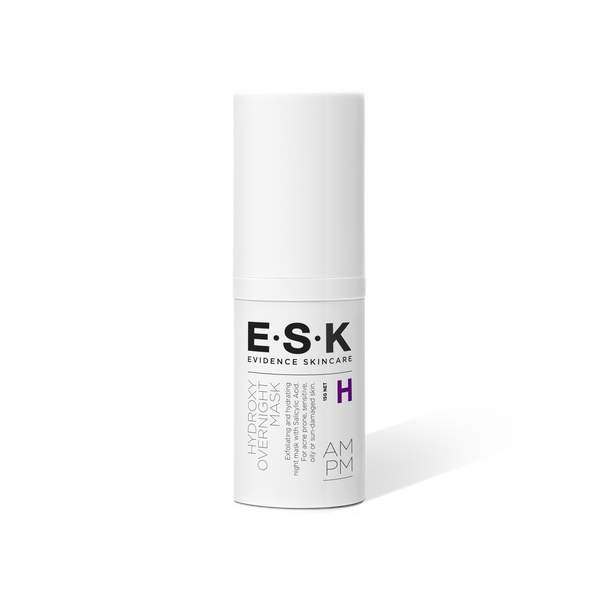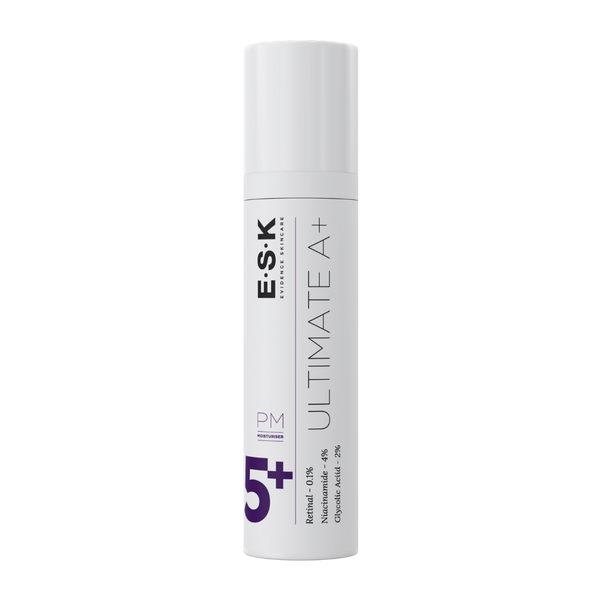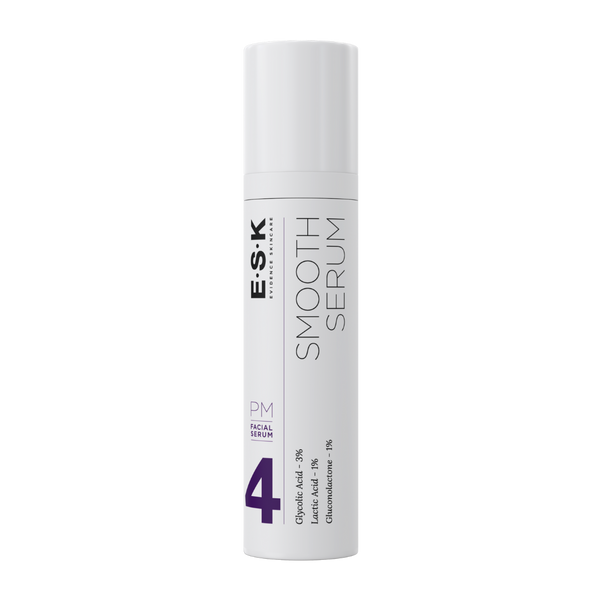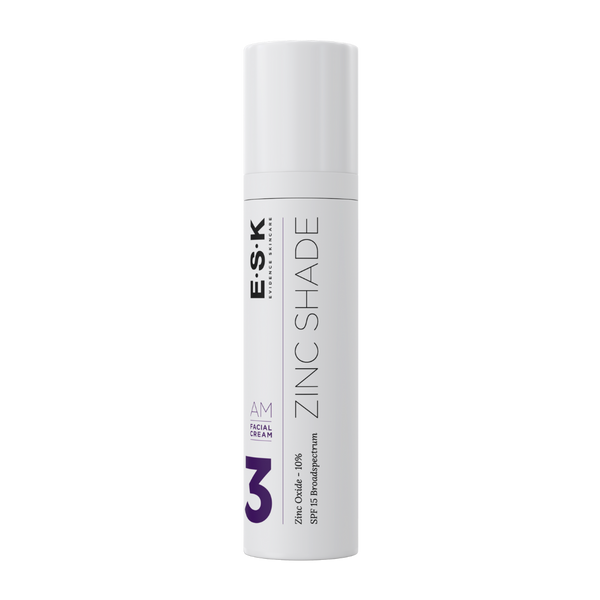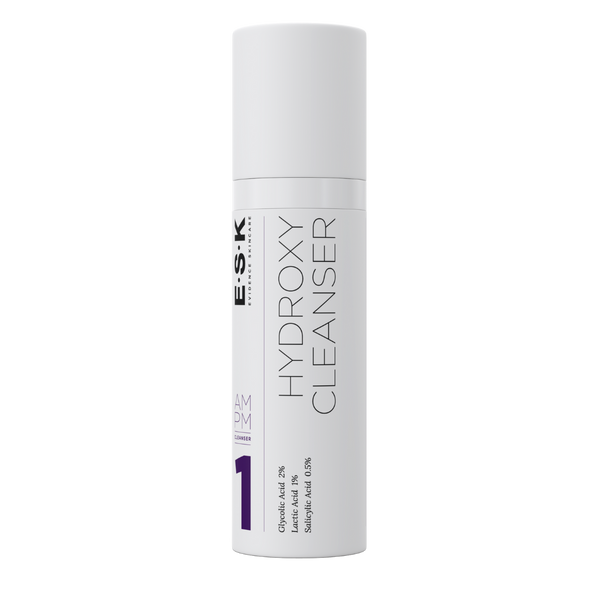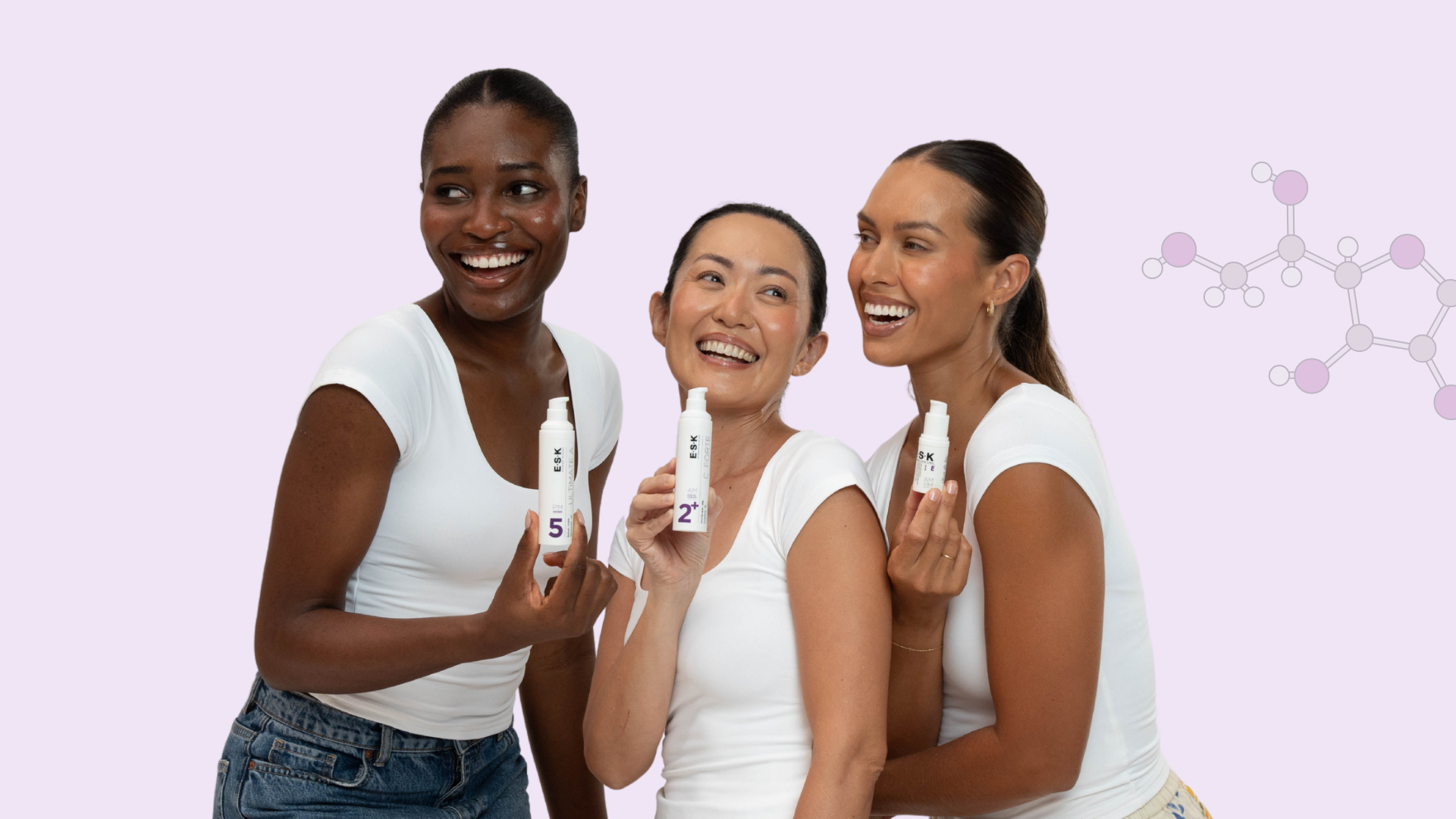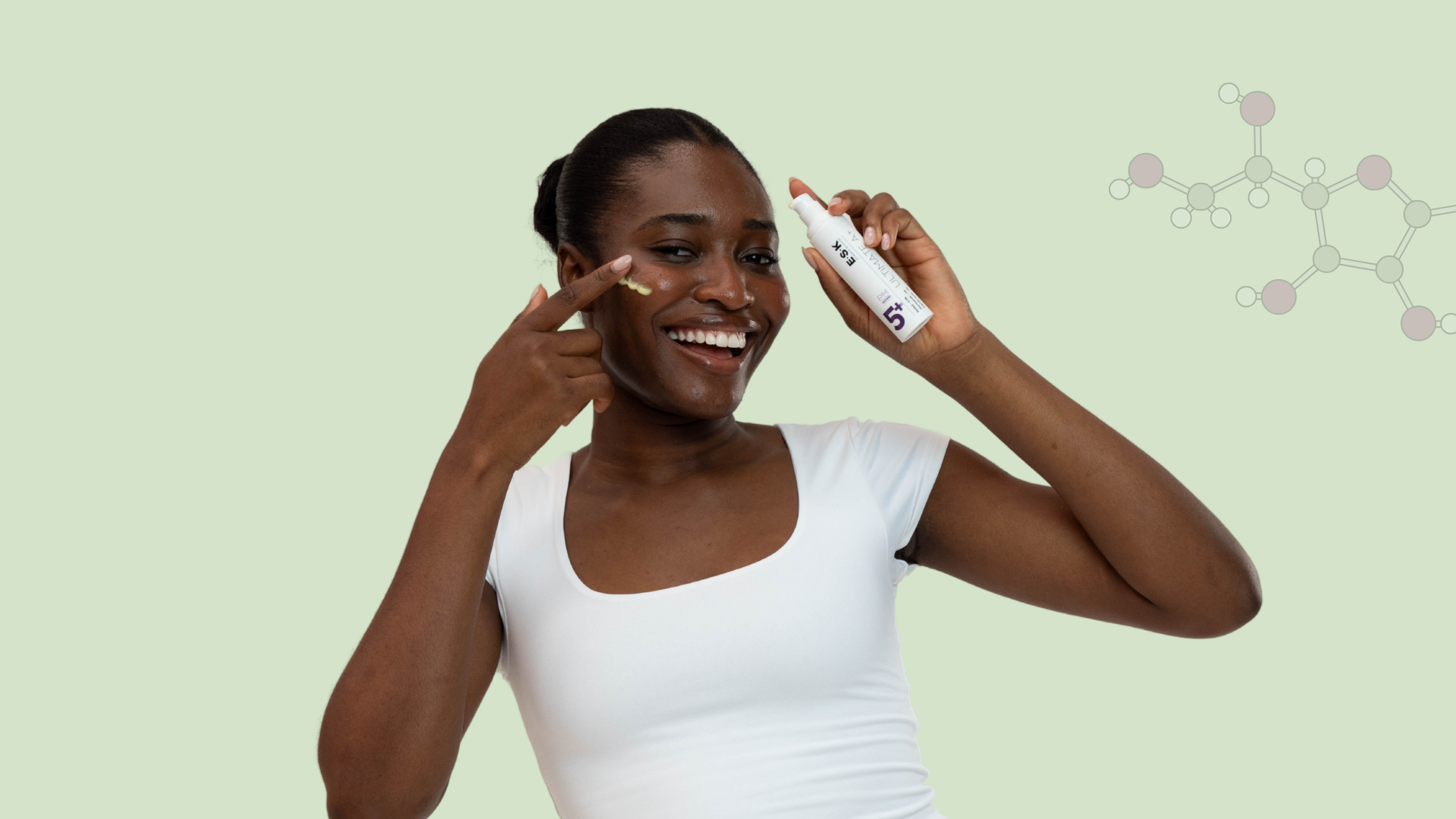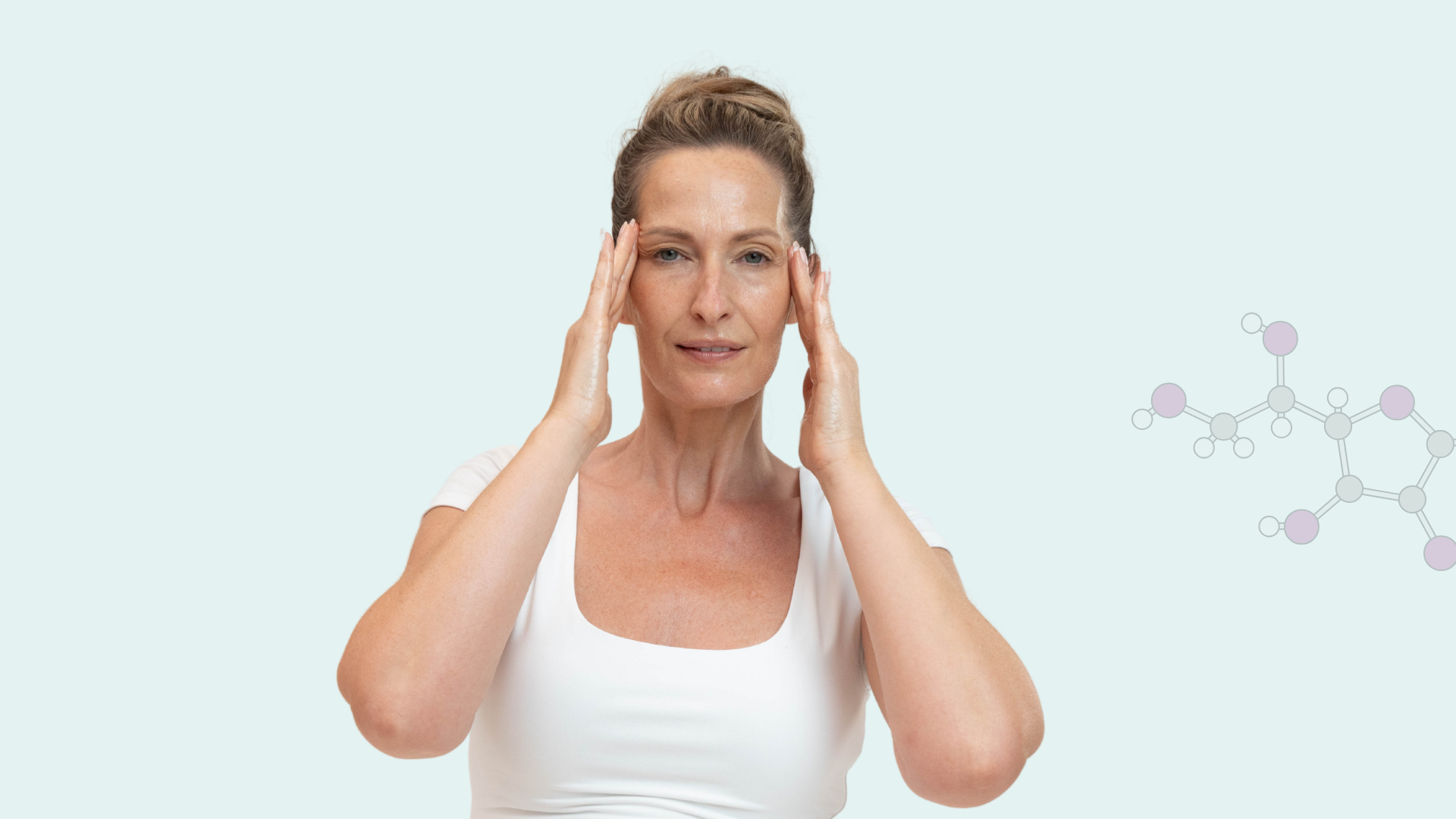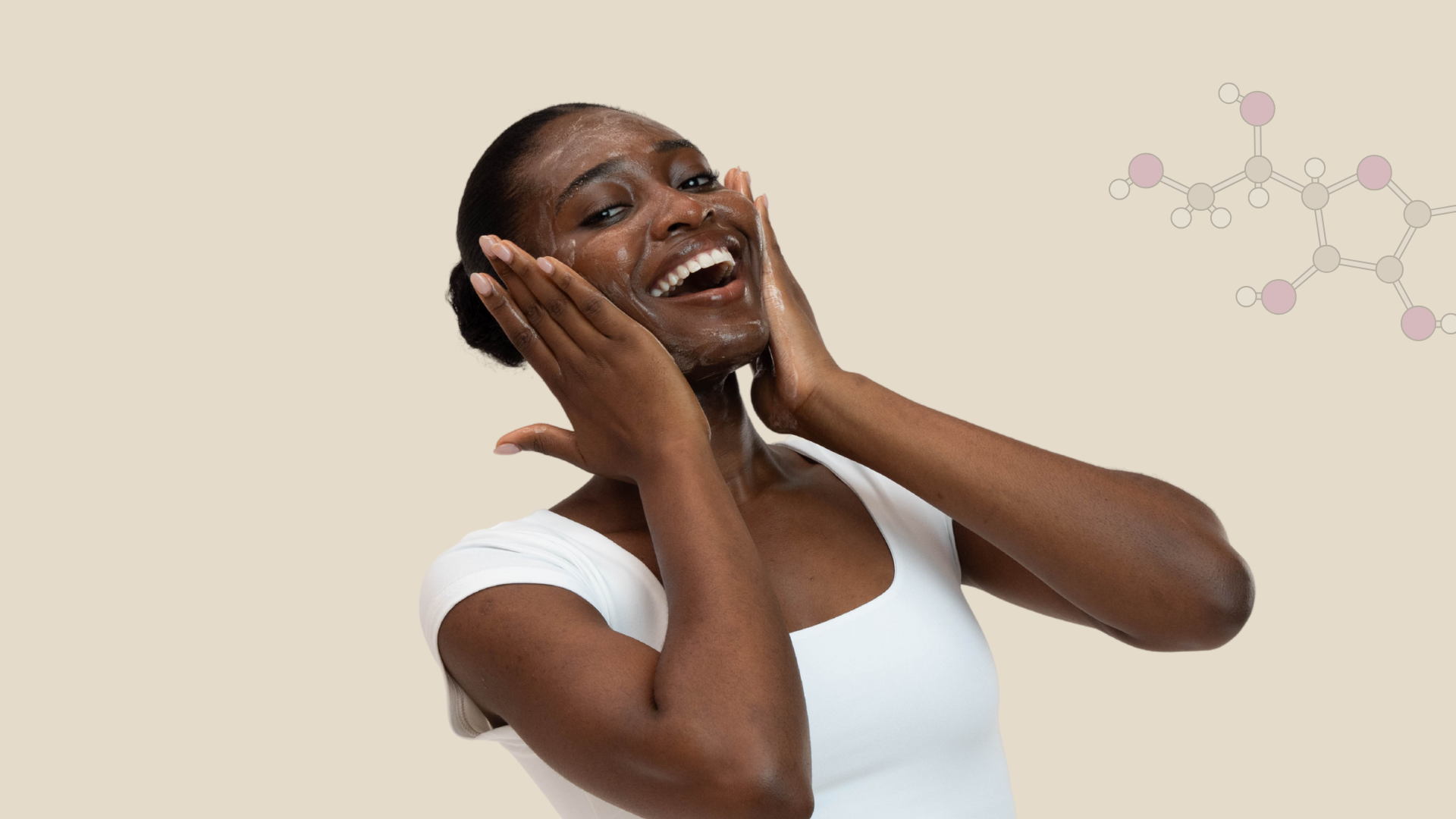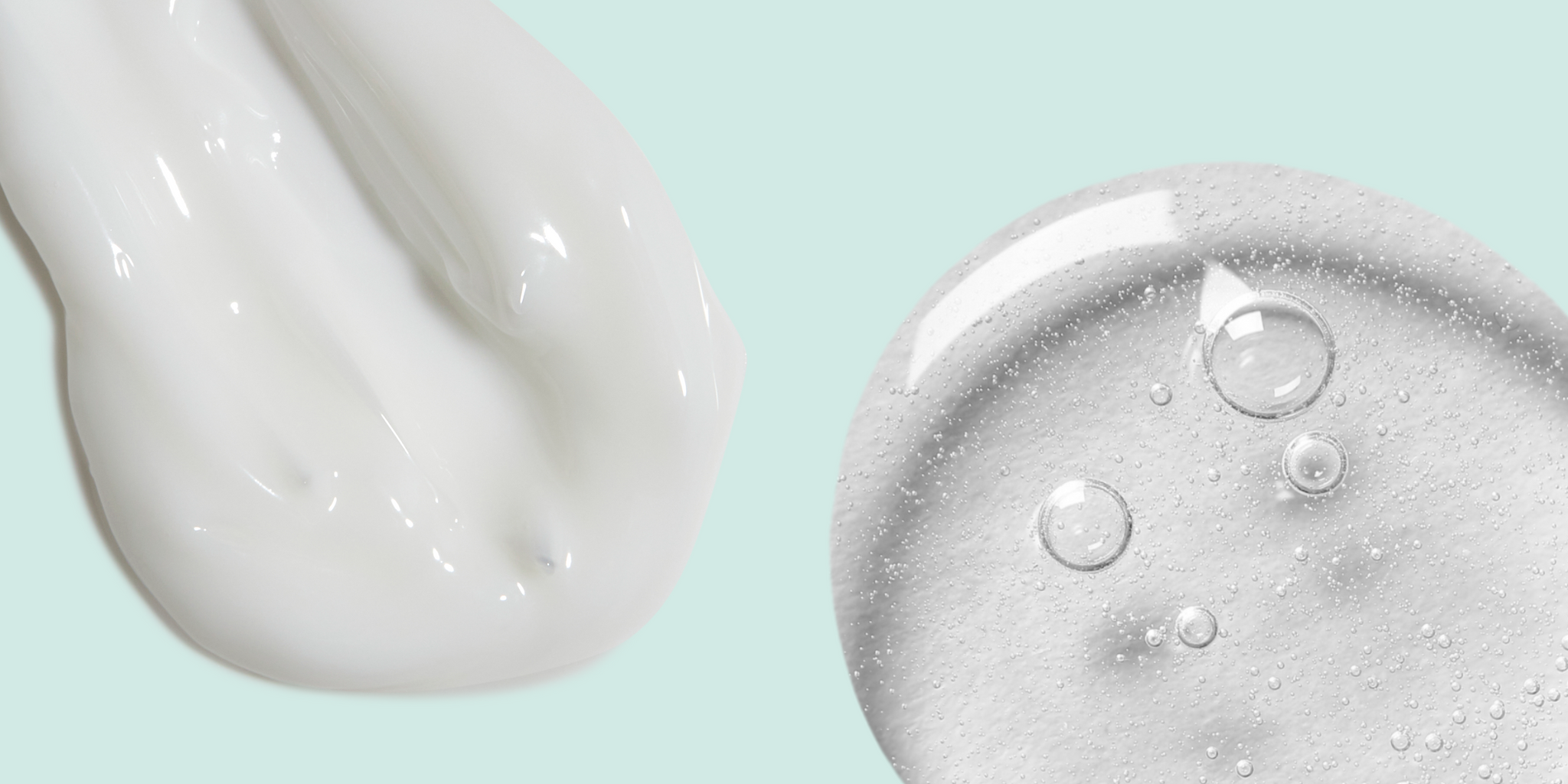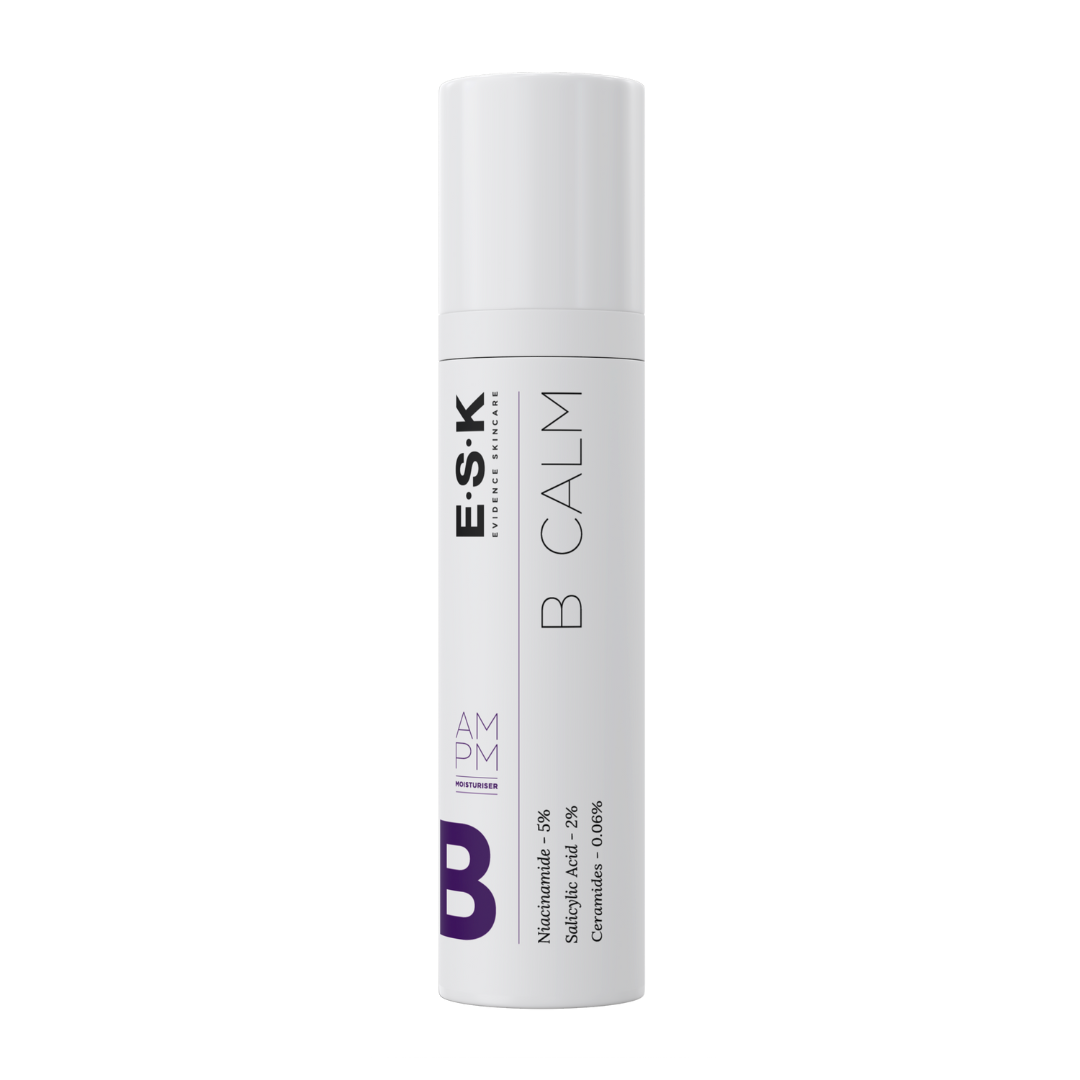
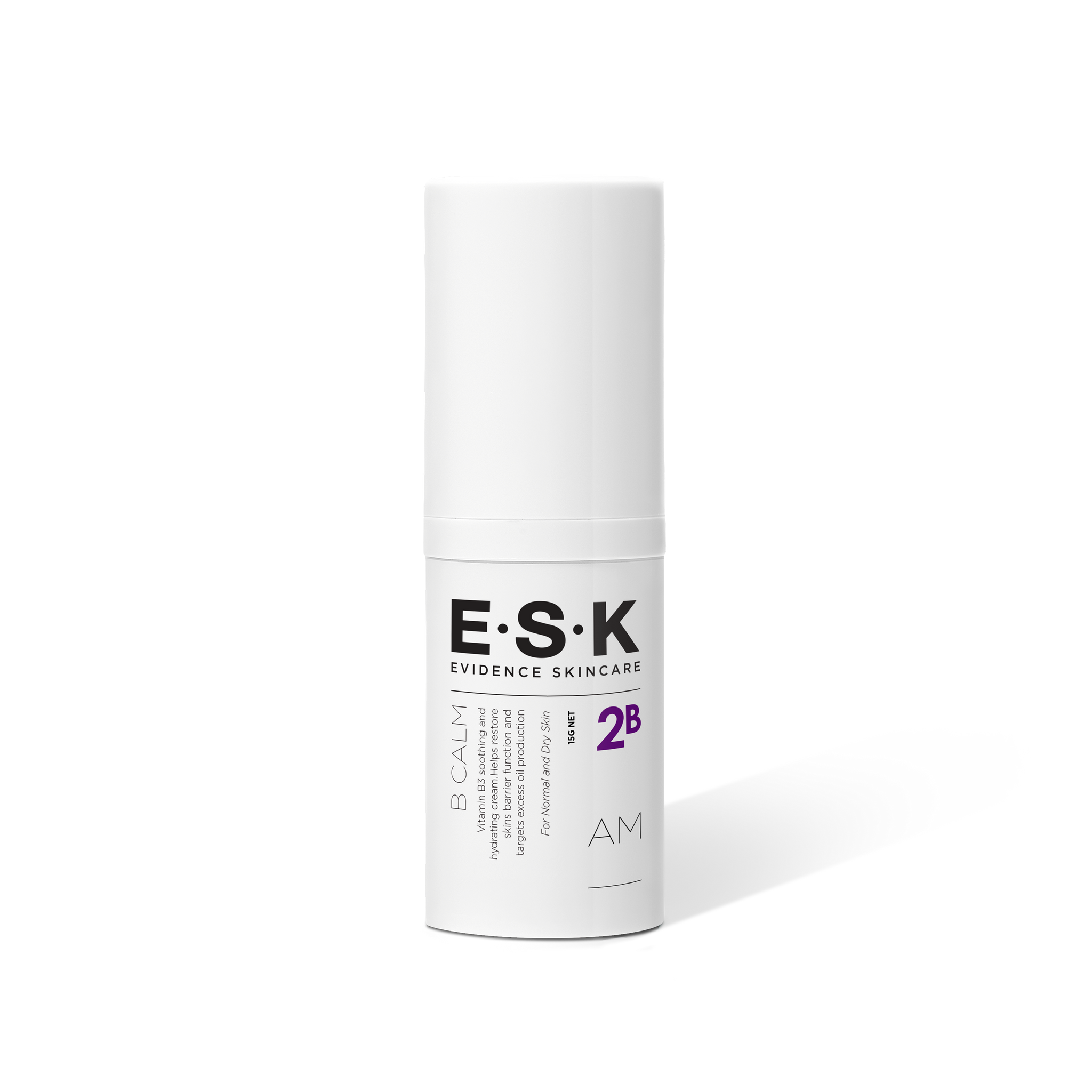
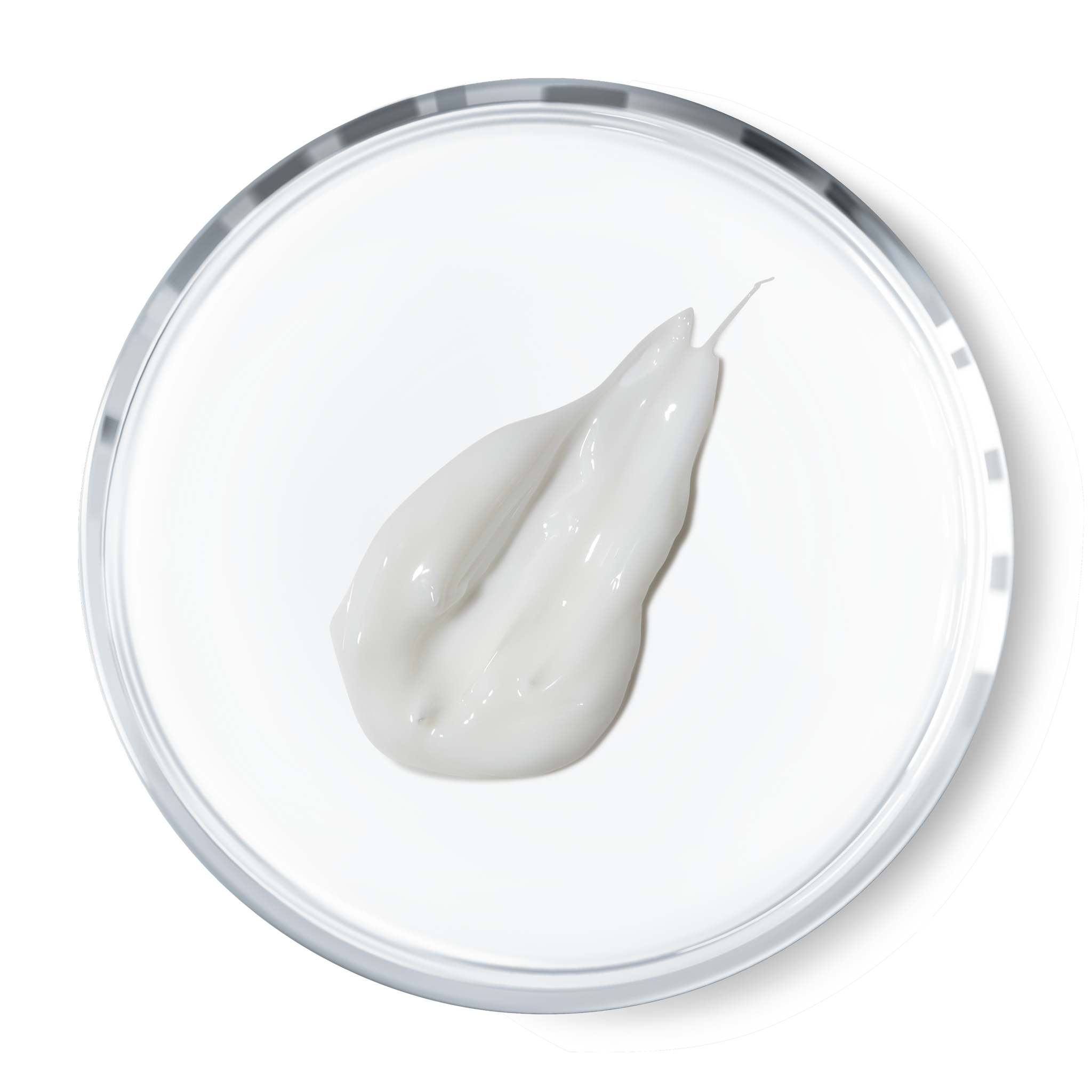
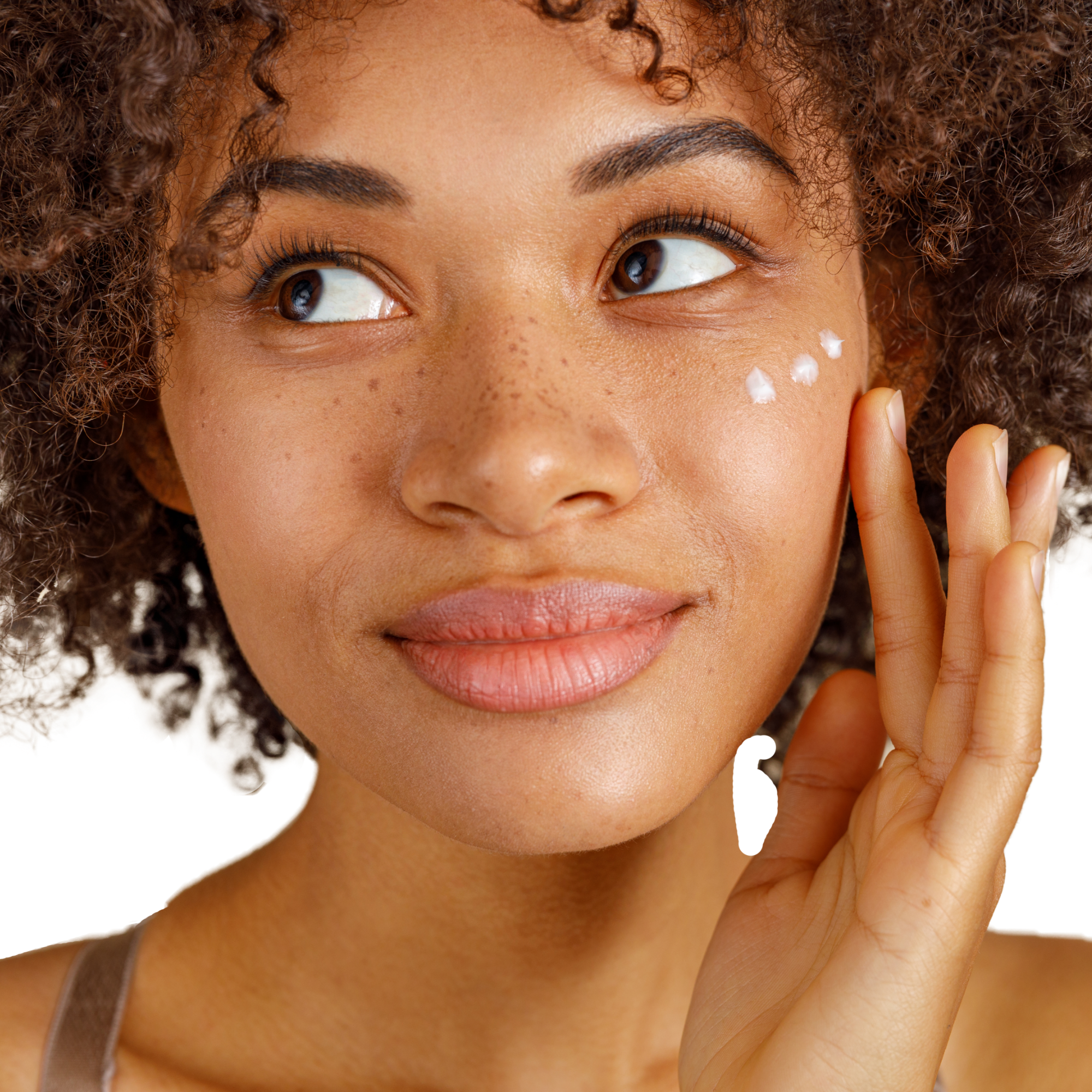
B Calm
B Calm Acne Cream is specially formulated to treat acne-prone skin while supporting a healthy skin barrier. Acne-prone skin often has a compromised barrier, leading to dryness beneath an oily surface. B Calm combines barrier-strengthening ceramides, which not only improve skin resilience but also help reduce breakouts. With salicylic acid to exfoliate, fight bacteria, and calm inflammation, B Calm targets pimples directly. Niacinamide (Vitamin B3) adds additional anti-inflammatory and antibacterial benefits while reducing excess oil production. This lightweight cream is gentle enough for daily use, making it an ideal solution for clearer, balanced, and healthier-looking skin.
Featuring;
-
Ingredients formulated for an improved skin barrier function
-
Powerful reduction in your skin’s oil production
Description
A light moisturising cream, for skin that is sensitive, oily or acne prone.
Vitamin B3 (5%) is an effective multi-purpose ingredient, having evidence for managing the skin’s natural oil production and improving acne and rosacea-symptoms. It also has evidence for improving the skin’s barrier function, reducing hyperpigmentation and acting as an anti-inflammatory agent. In addition, it has evidence for reducing the risk of skin cancer. Salicylic acid gently exfoliates the skin and has evidence for helping manage acne and reduces sun damage and some of the signs of premature aging.
Full Size - 50ml (lasts 3 - 4 months)
Travel Size - 15ml (lasts 3 - 4 weeks)
How do ceramides help acne-prone skin?
Acne often goes hand in hand with skin barrier dysfunction and reduced ceramide levels. Incorporating ceramides into B Calm helps to:
- Reduce dryness, inflammation and pimple count.
- Support a healthy skin barrier.
- Help keep your skin smooth and supple!
At Evidence Skincare (ESK), we’re passionate about staying at the cutting edge of scientific research. Recent studies have highlighted the incredible benefits of ceramides in treating acne. These essential fat molecules in the skin’s outer layer play a crucial role in maintaining a healthy skin barrier and reducing inflammation.
Evidence

Niacinamide
Manages Acne, Rosacea and eczema, reduces pigmentation and improves skin barrier function. An Anti-Oxidant, assists in repair of cell DNA, improves skin barrier function and manages the skin’s natural oil production increases skin elasticity and reduces pigmentation.

Salicylic Acid
Being related to Aspirin, Salicylic acid has anti-inflammatory properties and is generally well-tolerated. It exfoliates the skin and has been shown to be effective in reducing acne, managing some of the signs of premature (sun-induced) skin aging (especially hyperpigmentation) and psoriasis.
Emerging evidence

Ceramides
The emerging evidence suggests that smaller ceramides can improve the skin barrier function which helps with skin hydration and decreasing skin inflammation.
Usage
Apply 1 – 2 pumps to fingertips and apply to face before sunscreen in the morning. Also for use on décolletage, back of hands and forearms.
Ingredients
Water/Aqua, Propylene Glycol, Niacinamide, Caprylic/Capric Triglyceride, Cetearyl Alcohol, Glycerin, Ethoxydiglycol, Glyceryl Stearate, Coco-Caprylate, Salicylic Acid, Butyrospermum Parkii (Shea) Butter, Dimethicone, α-Bisabolol, Natural, PEG-100 Stearate, Phenoxyethanol, Ascorbyl Tetraisopalmitate, Caprylyl Glycol, Sodium Lauroyl Lactylate, Allantoin, Carbomer, Disodium EDTA, Pentylene Glycol, Tocopheryl Acetate, Citric Acid, Fructose, Sodium Hydroxide, Urea, Ceramide NP, Ceramide AP, Ceramide EOP, Phytosphingosine, Cholesterol, Xanthan Gum, Maltose, Sodium Chloride, Sodium Lactate, Sodium PCA, Trehalose, Glucose, Sodium Hyaluronate
what's the best anti aging cream?
While there are no studies comparing the effectiveness of different commercial products, there are lots of studies on ingredients used in anti-aging creams. After sunscreen, the ingredient recognised as having the best evidence for managing aging skin is Vitamin A and specifically the prescription form, Retinoic Acid. It is however irritating with up to 60% of users experiencing irritation, dryness and burning. Retinal, another form of Vitamin A, has been shown to be as effective as Retinoic Acid, but without any of the irritation and based on the evidence is the preferred form of Vitamin A. Other ingredients with good evidence for aging skin are Vitamin C (Ascorbic Acid) (particularly when paired with Vitamin E) and Alpha Hydroxy Acids and VItamin B3 (Niacinamide)
how does anti aging cream work?
Anti-aging creams work a number of different way. The first is reducing damage through sun protection. Sun exposure is estimated to be responsible for about 80% of premature aging. The next is the use of Vitamin A, which has its own receptors in the skin. When Vitamin A triggers the receptors, that leads to more collagen being produced, an increase in skin cell turnover and reduced pigmentation. Alpha Hydroxy acids exfoliate the skin making it smoother and softer and also help it retain moisture. Vitamin B3 (Niacinamide) is involved in metabolism of energy within our cells and has been shown to improve skin barrier function, increasing skin water retention, protects the skin from UV damage, reduces excess pigmentation in the skin and is anti-inflammatory. That makes it a great allrounder for aging skin. Vitamin C (Ascorbic Acid) is one of the best studied anti-oxidant ingredients, which protects our skin from and repairs the effects of the sun’s UV rays. This includes reducing wrinkles, fine lines, skin roughness and pigmentation and even leading to quicker healing of sunburn. Its effectiveness is increased when formulated with Vitamin E and even more so when Ferulic acid is added. And independently, it stimulates collagen growth too.
what is the best anti aging cream?
There is no one cream which is best. The most important tool in anti-aging is Sunscreen. And while Vitamin A has the best evidence for reducing the signs of aging in the skin, it should only be used at night, (meaning that it should not be added to sunscreens). The other ingredients with evidence for aging skin are Vitamin B3 (which can used with most other evidence based ingredients), Alpha Hydroxy acids (which can be irritating to sensitive skin) and Vitamin C, which is unstable and needs to be in a stand alone product.
is sunscreen good for anti aging?
Not only is sunscreen good. But it is viewed as the most important part of an anti-aging skincare regime. Look for a broadspectrum sunscreen which protects not only from UVB (which is what an SPF number measures), but also from UVA (often referred to as the sun’s aging rays). UVA is present throughout the year from sunrise to sunset!
when to start anti aging products?
There are no studies on the benefits of starting an anti-aging skincare regime before the signs of aging skin have actually started to emerge. But given that sun damage in particular accumulates over years, it makes sense to start well before the signs have emerged.

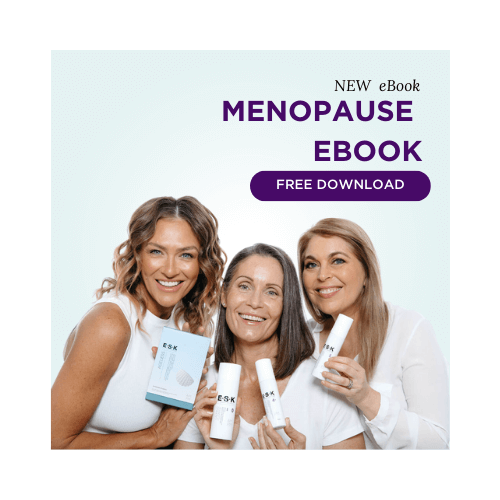
.jpg?v=1678930539812&options=w_2048)
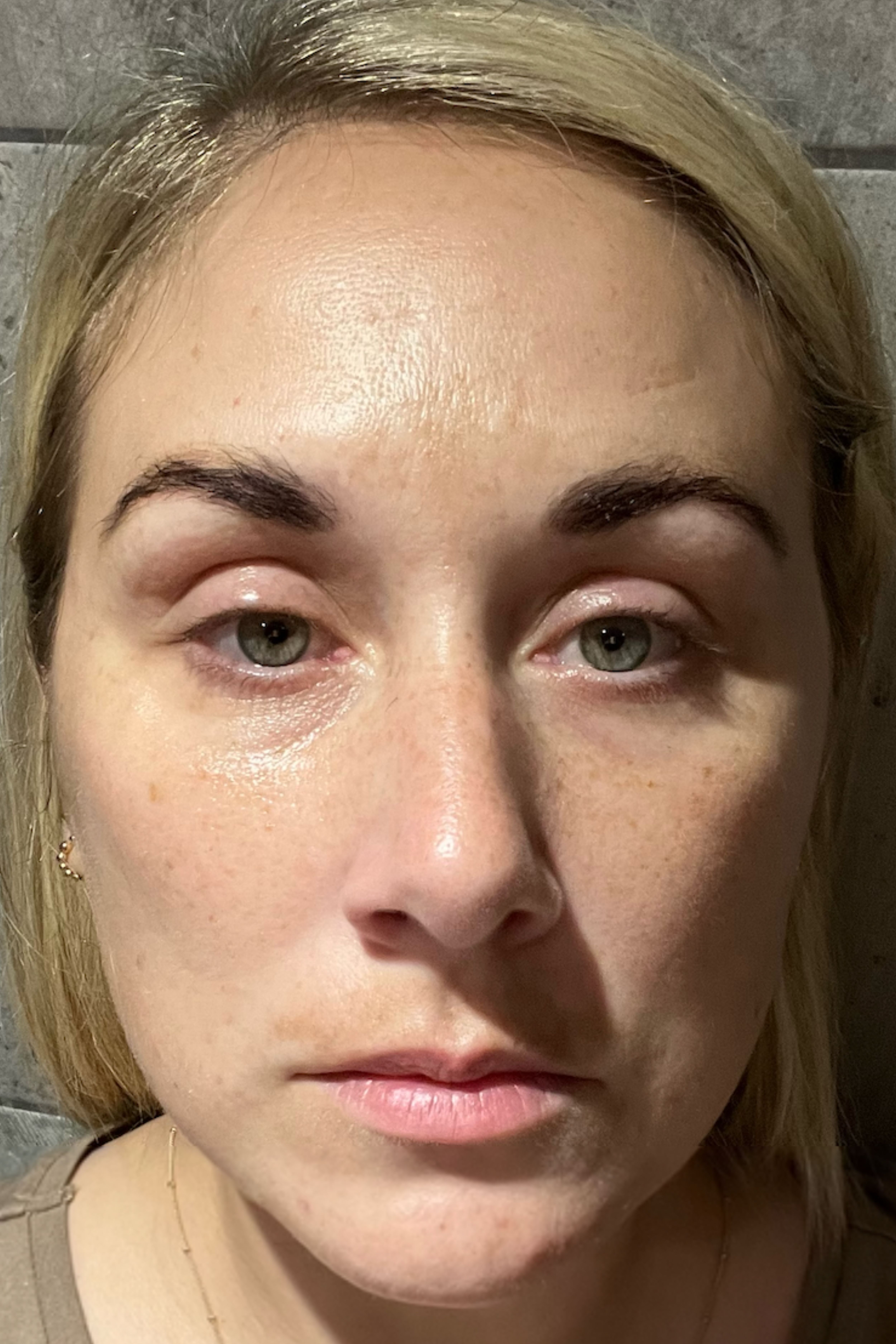
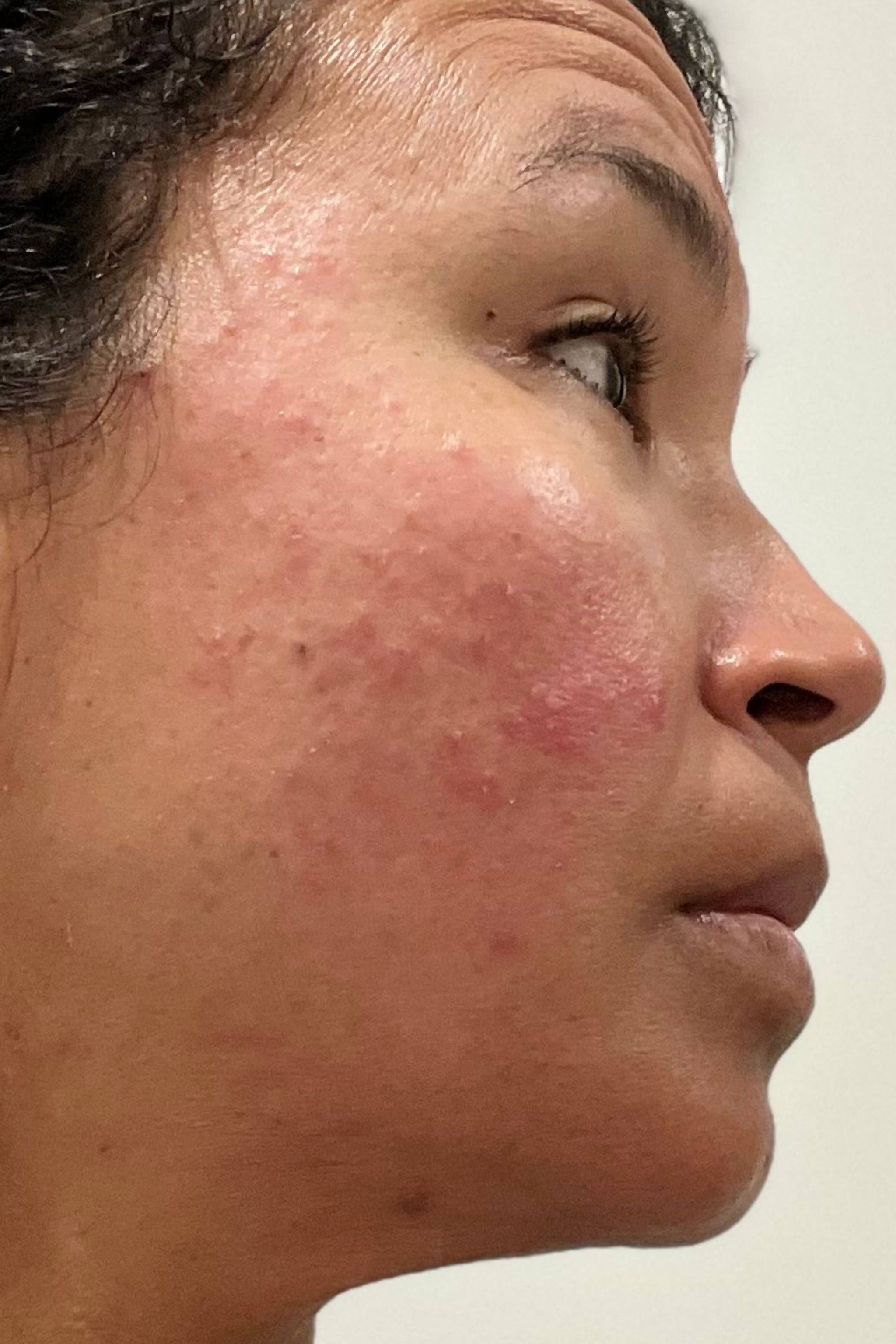
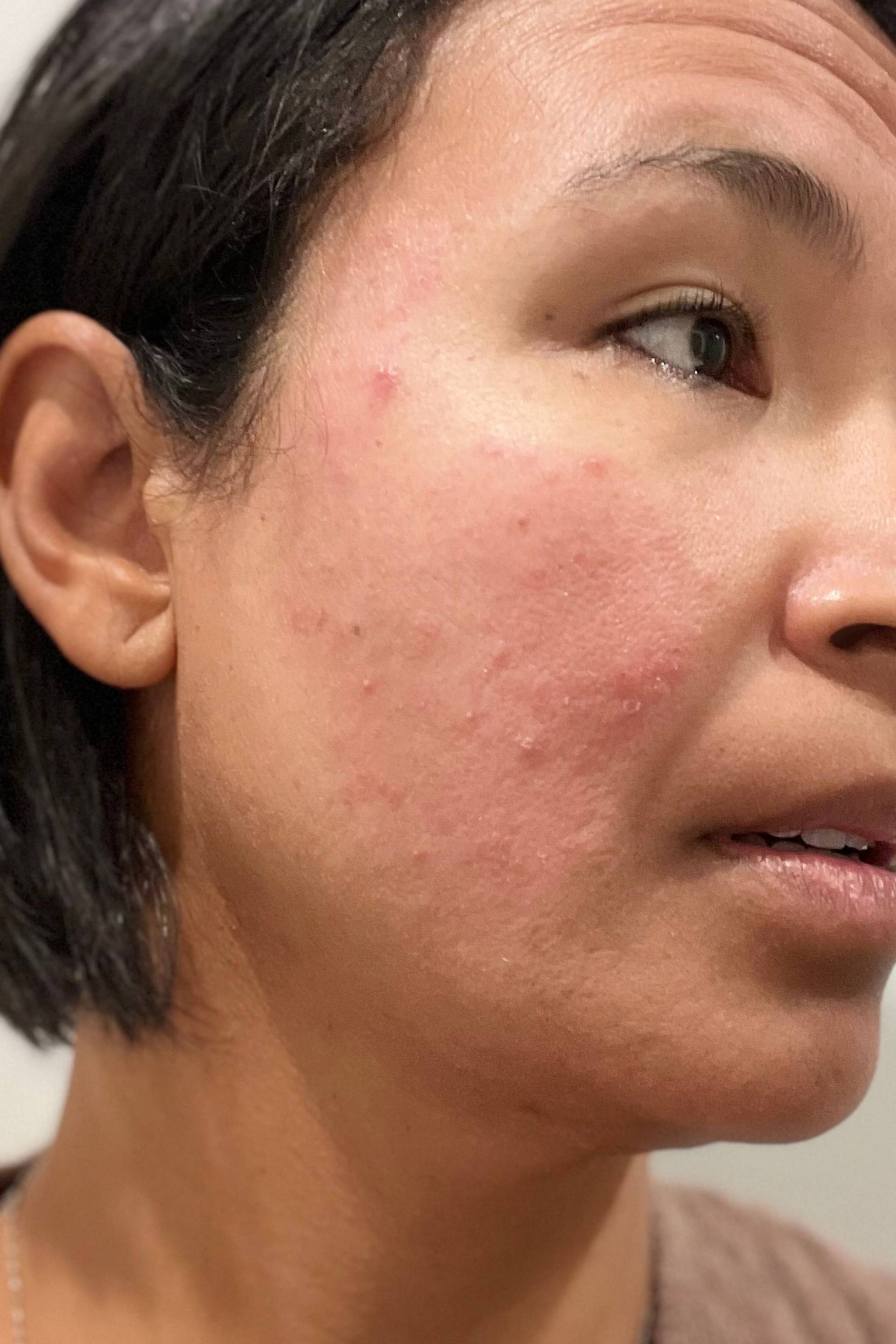
.jpeg%3Fv%3D0&c_options=w_2048)
.jpeg%3Fv%3D0&c_options=w_2048)
.jpg?v=0&options=w_2048)
.jpg?v=0&options=w_2048)
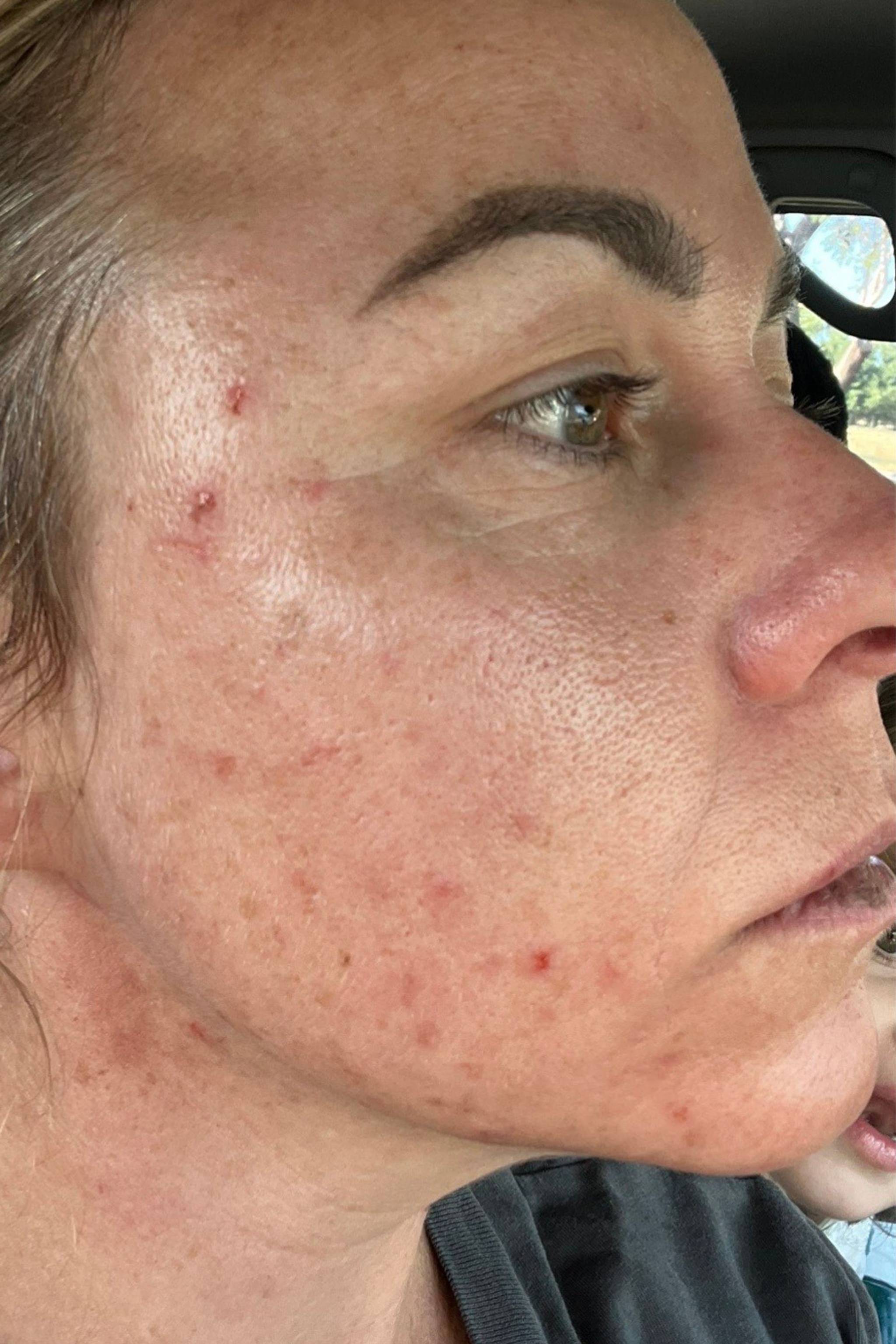
.jpg?v=1687408842778&options=w_2048)
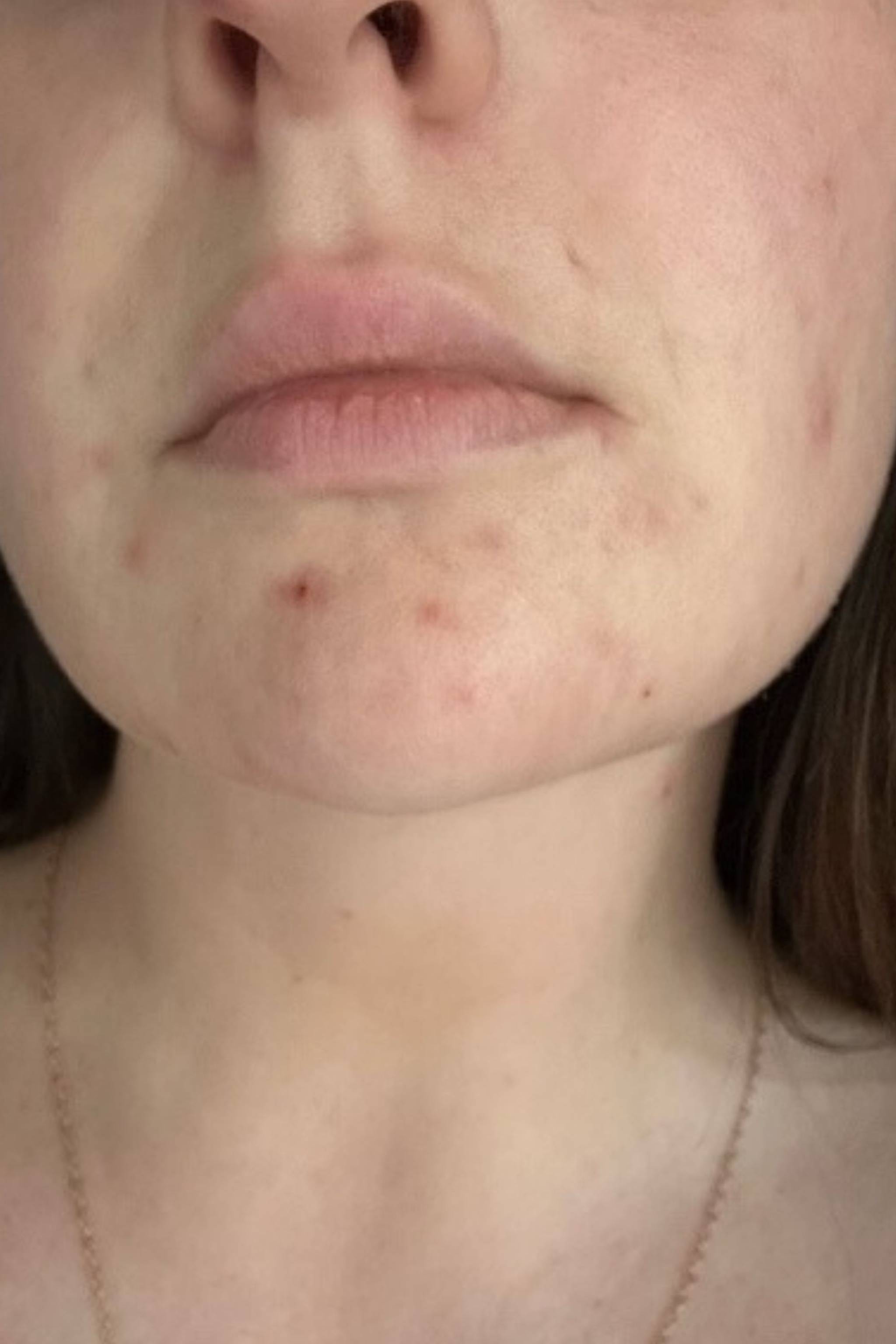
.jpg?v=1687411344929&options=w_2048)
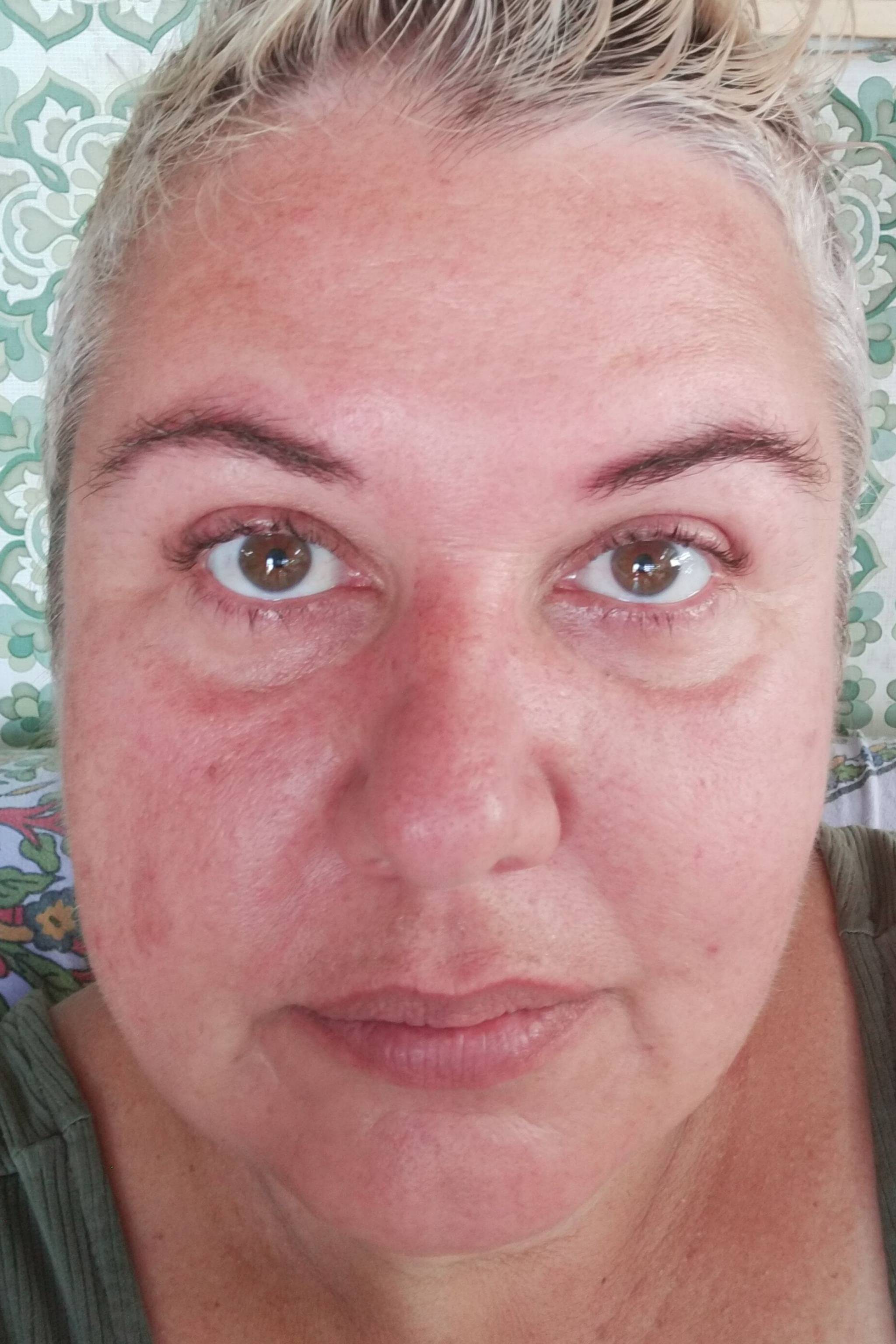
.jpg?v=1687411011532&options=w_2048)
.jpg?v=0&options=w_2048)
.jpg?v=0&options=w_2048)
.jpg?v=0&options=w_2048)
.jpg?v=0&options=w_2048)
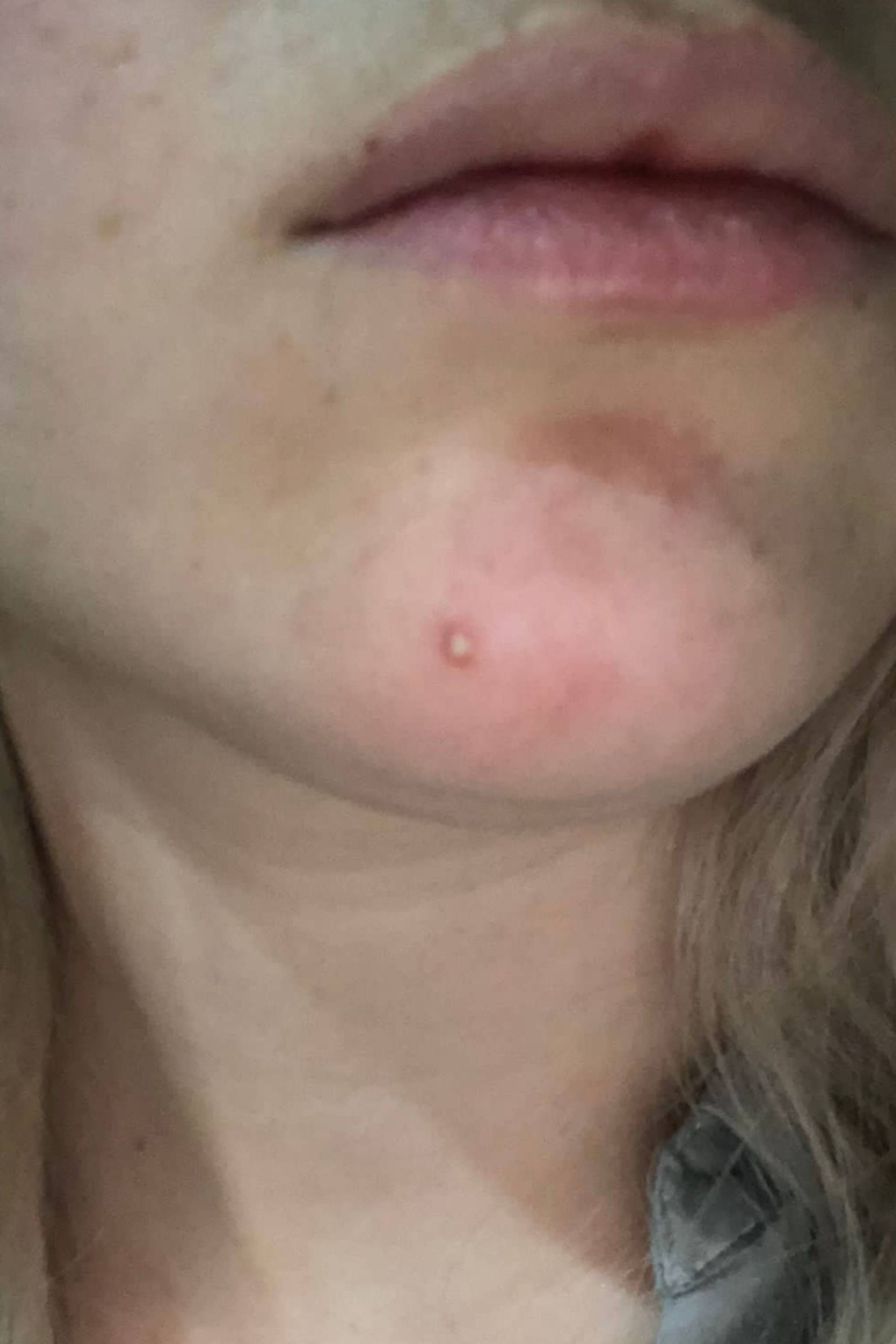
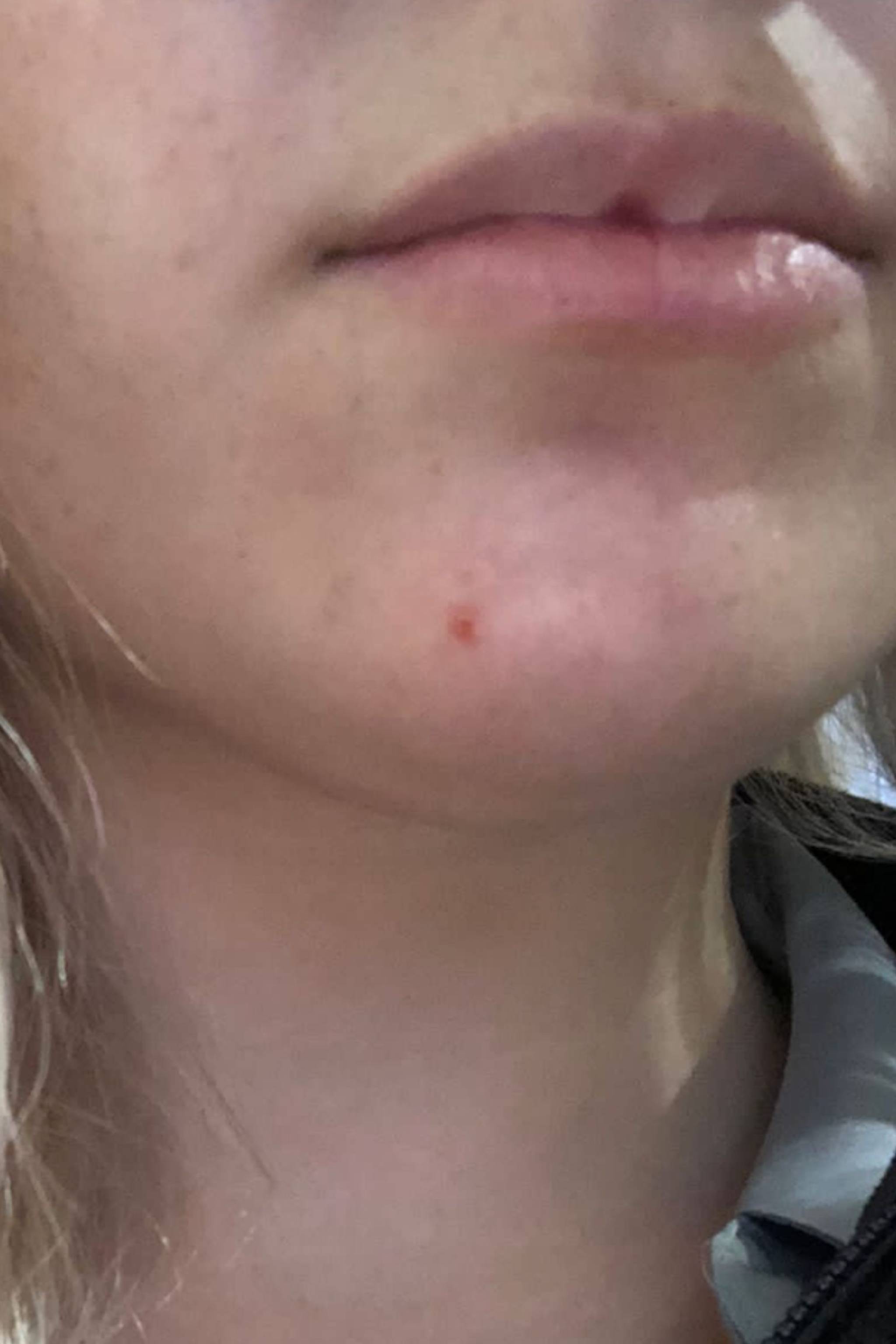
.jpg%3Fv%3D0&c_options=w_2048)
.jpg%3Fv%3D0&c_options=w_2048)
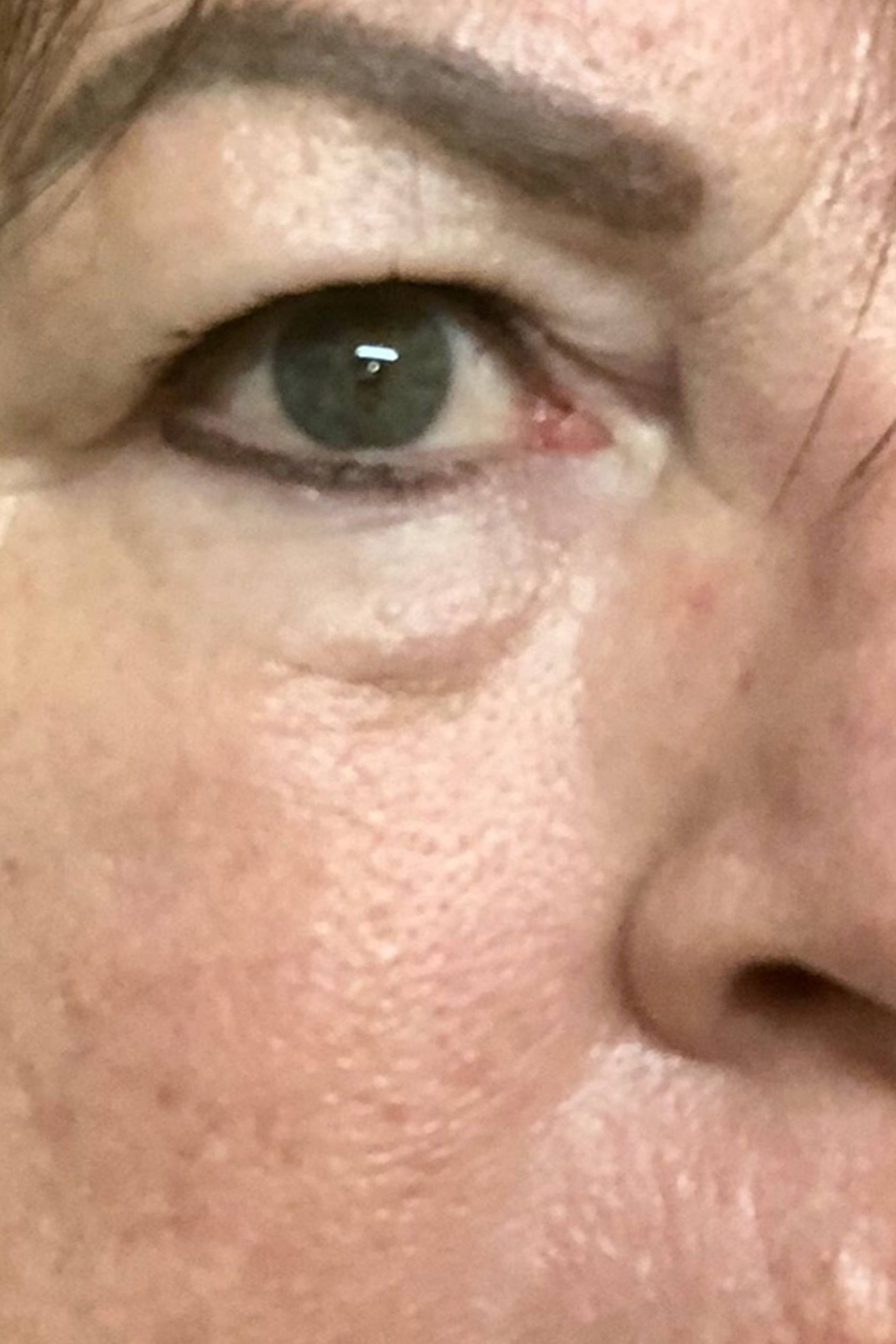
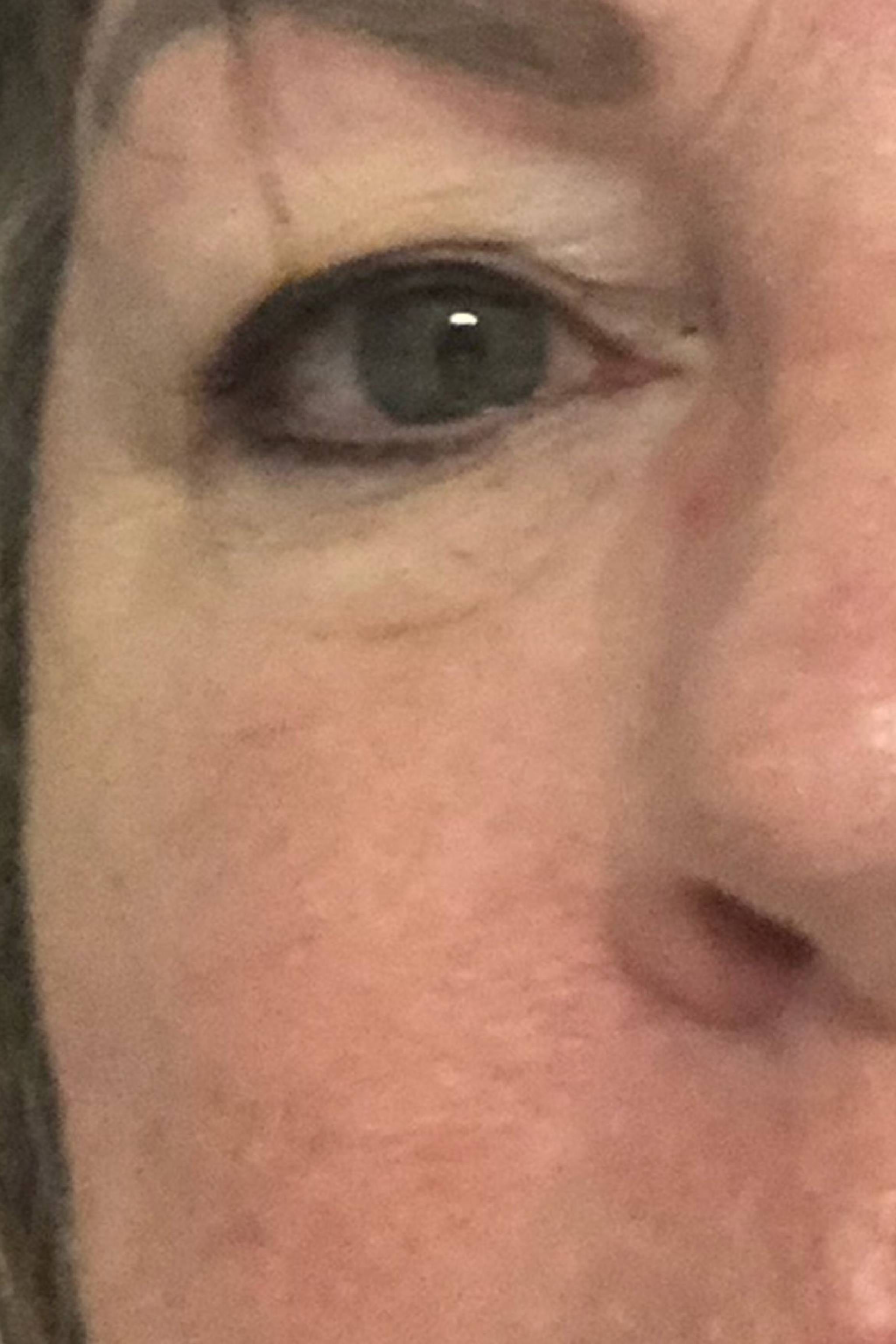
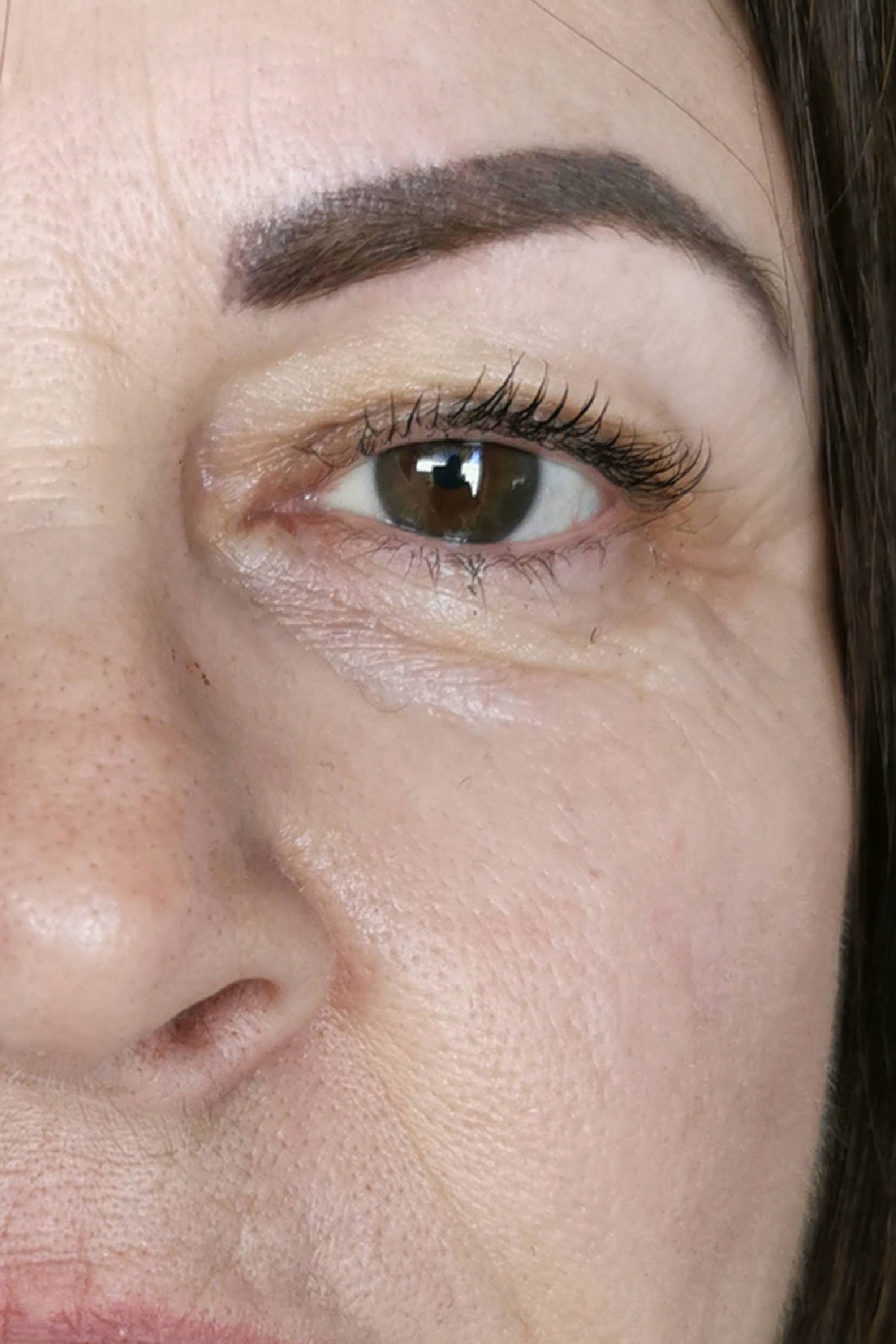
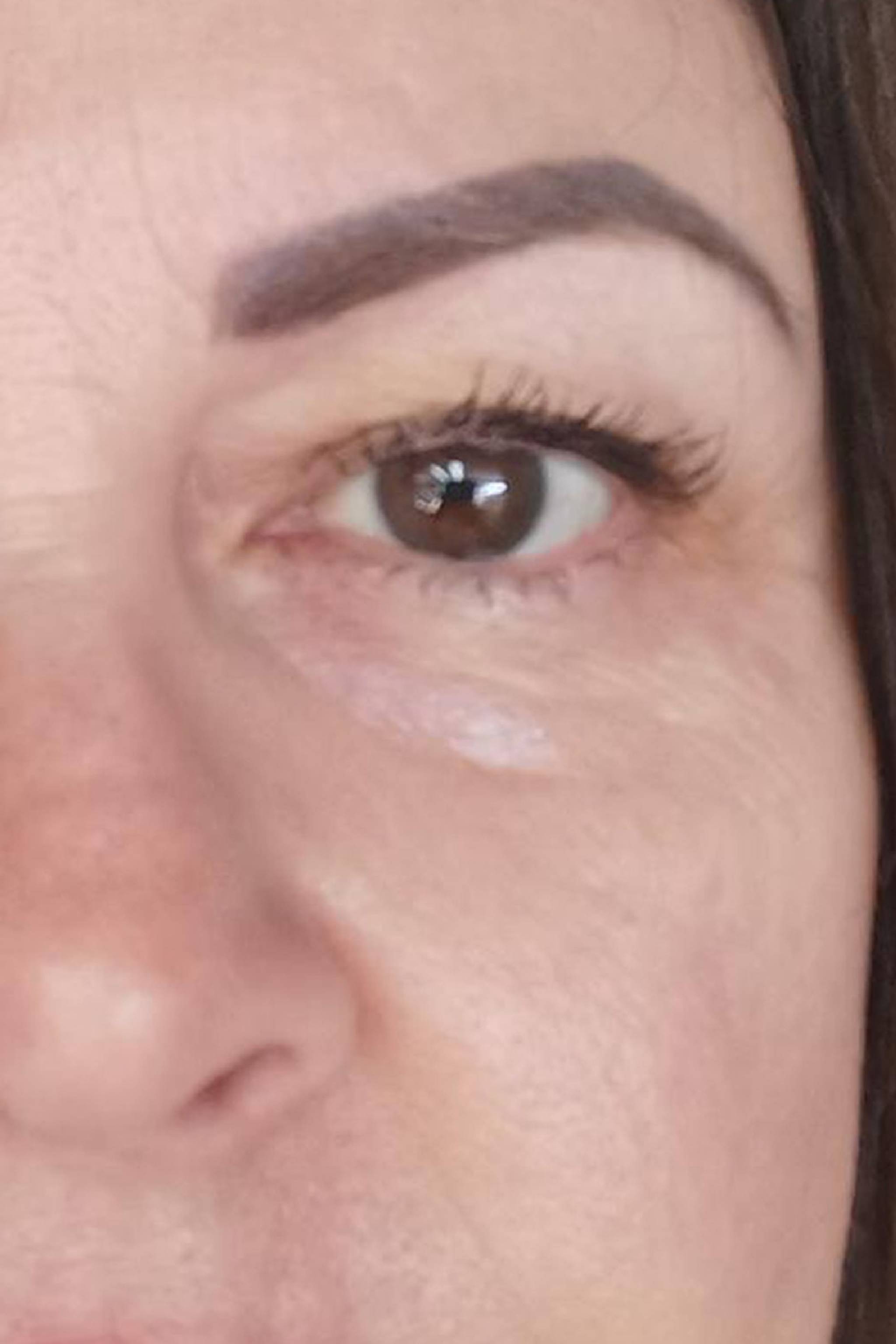
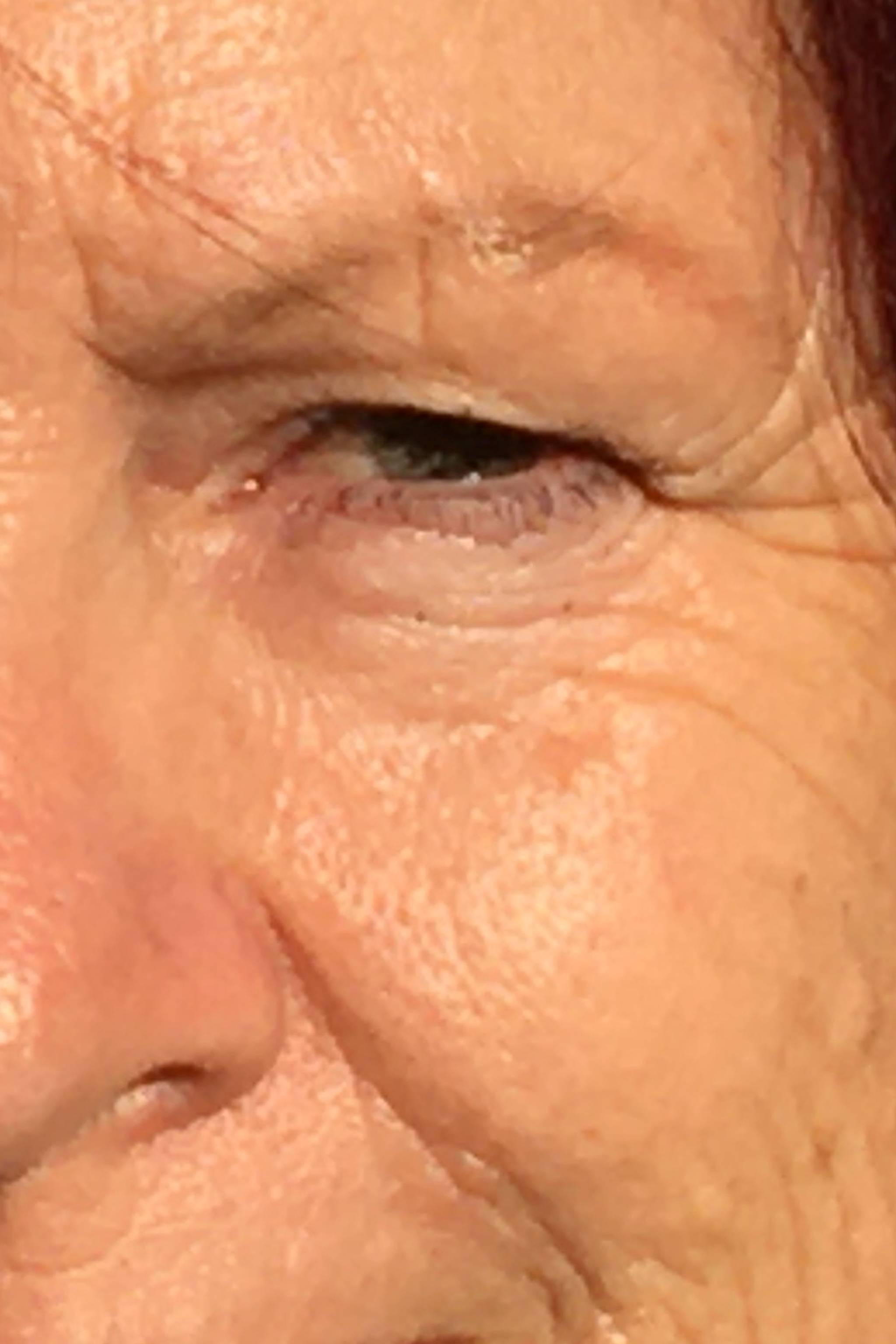
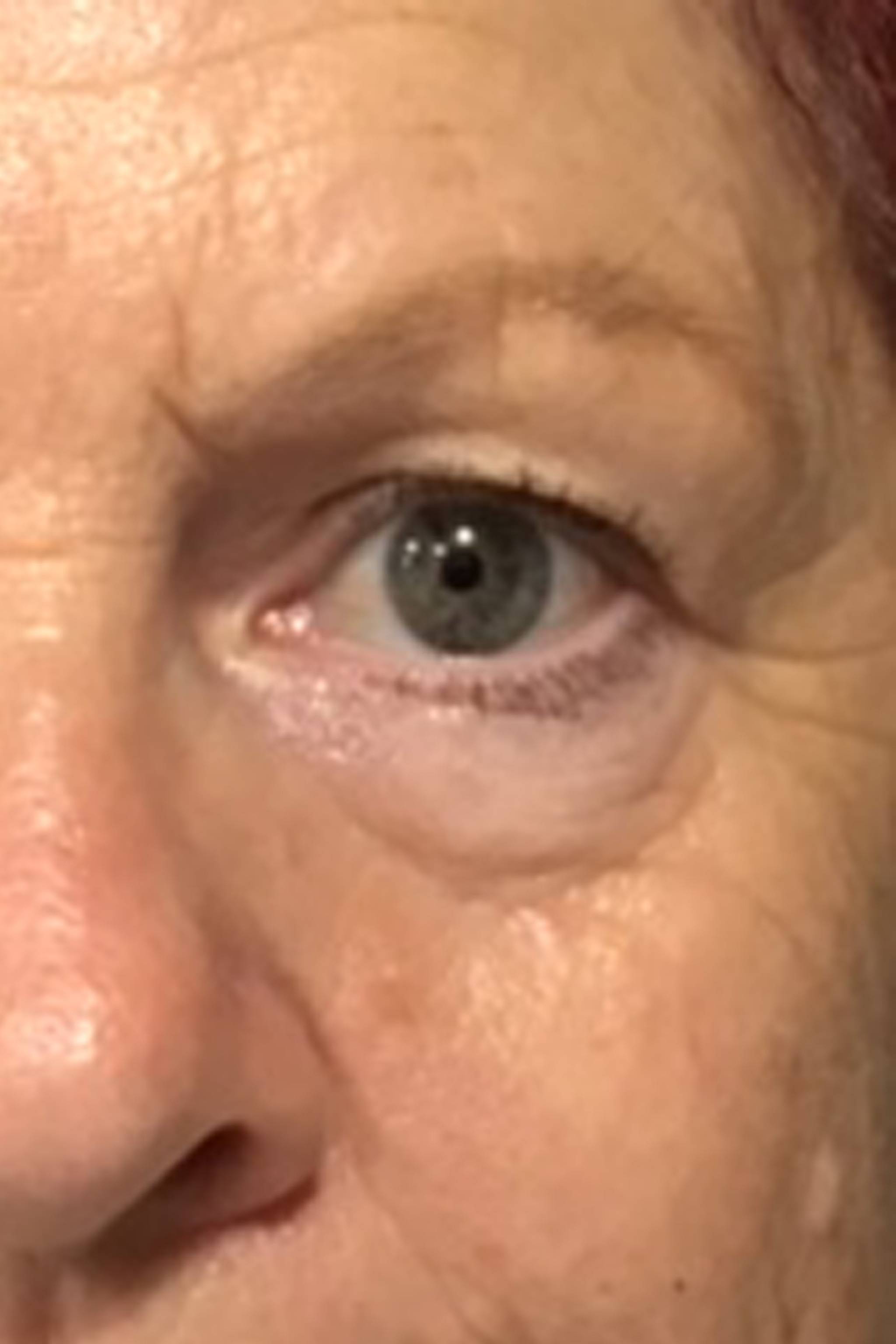
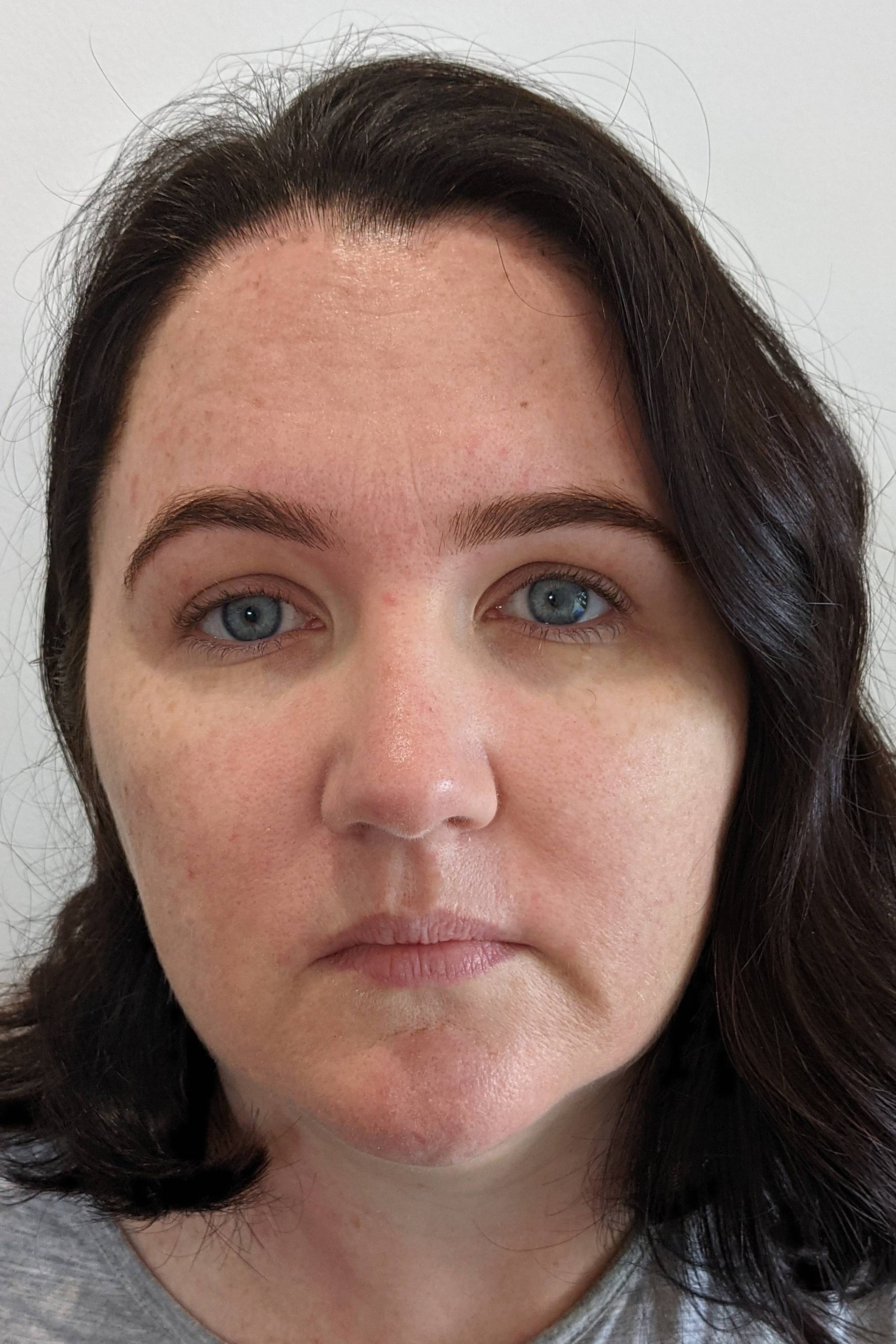
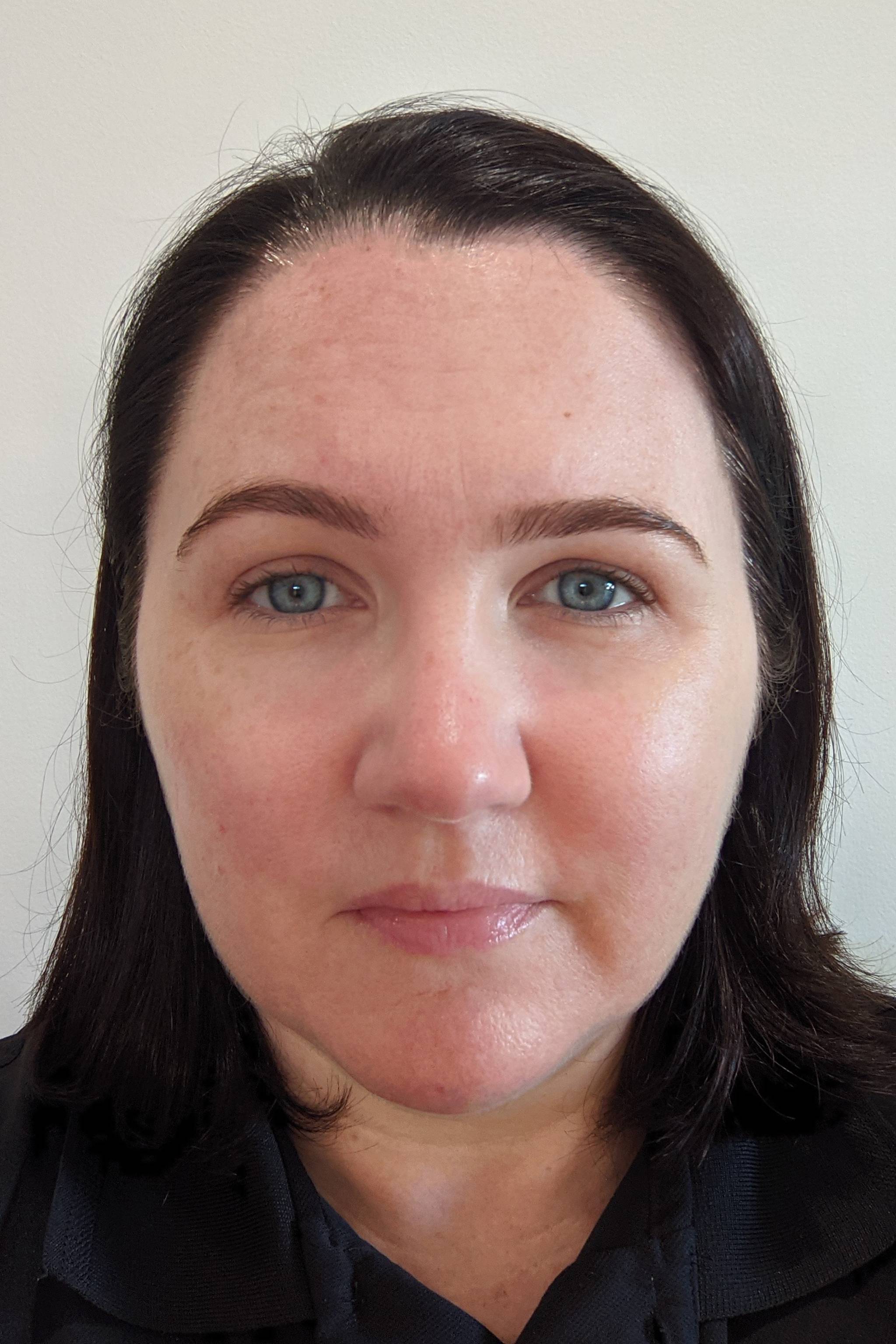
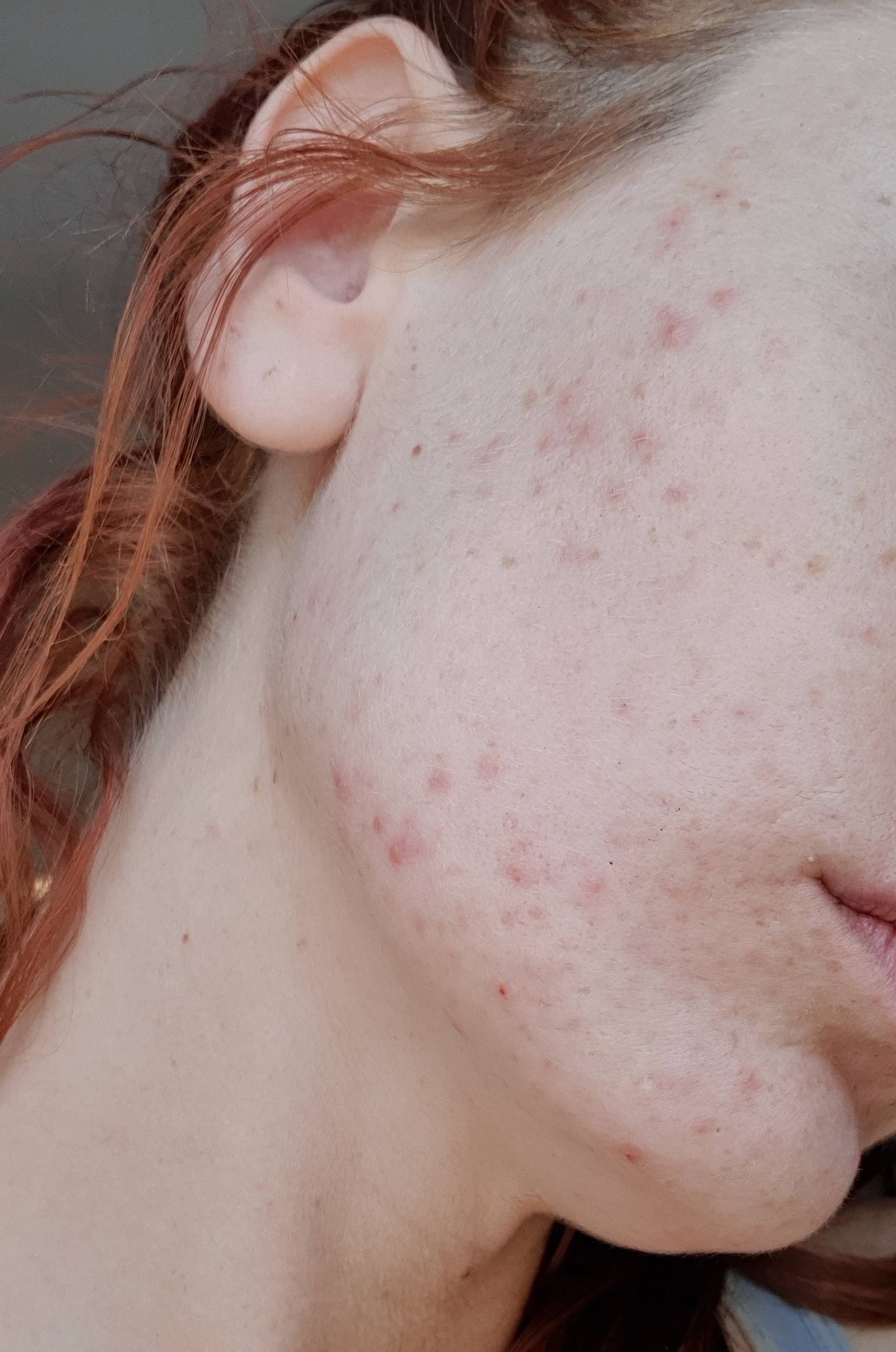
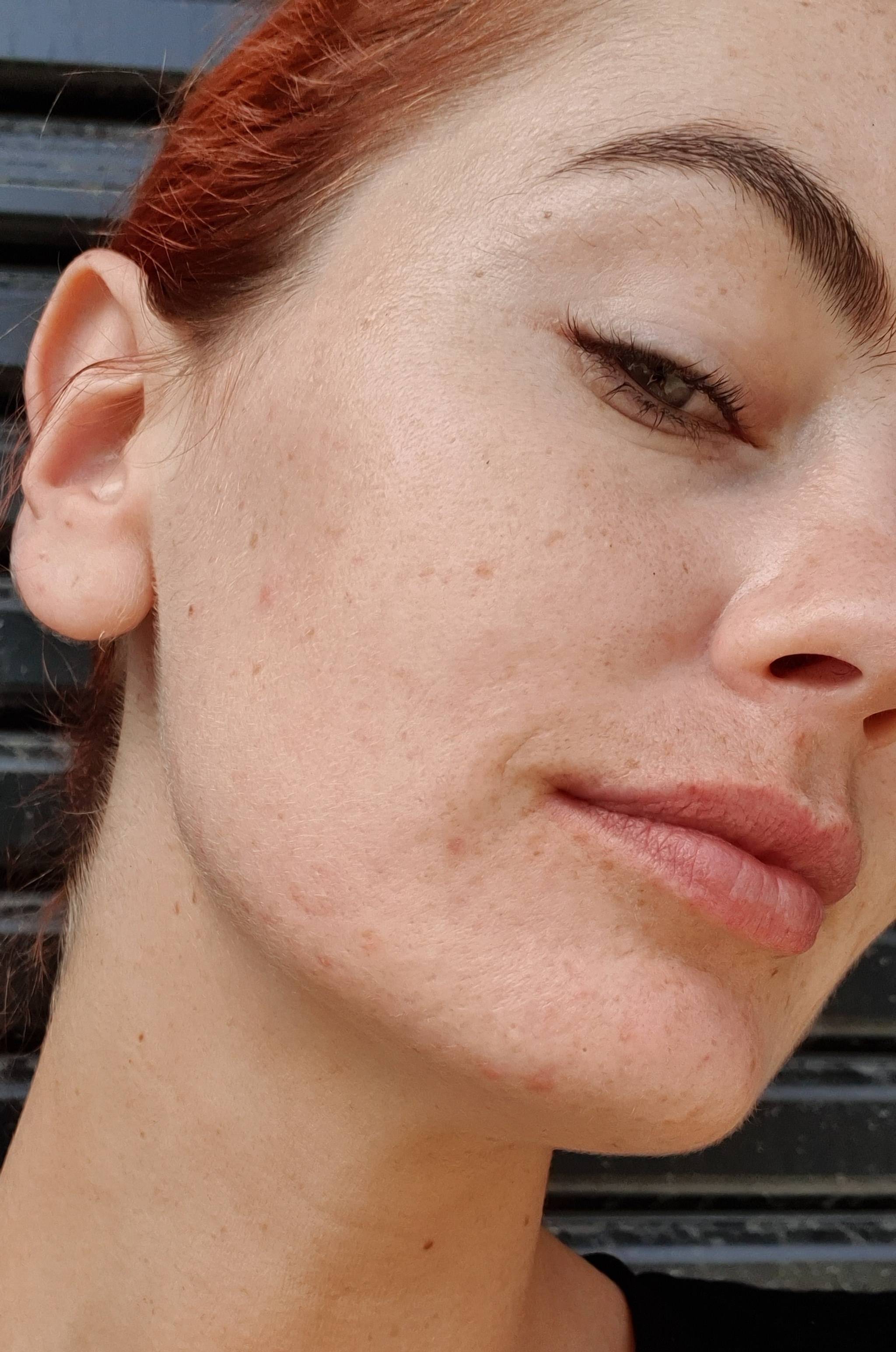
.jpg%3Fv%3D0&c_options=w_2048)
.jpg%3Fv%3D0&c_options=w_2048)
.jpg%3Fv%3D0&c_options=w_2048)
.jpg%3Fv%3D0&c_options=w_2048)


.jpg%3Fv%3D0&c_options=w_2048)
.jpg%3Fv%3D0&c_options=w_2048)
